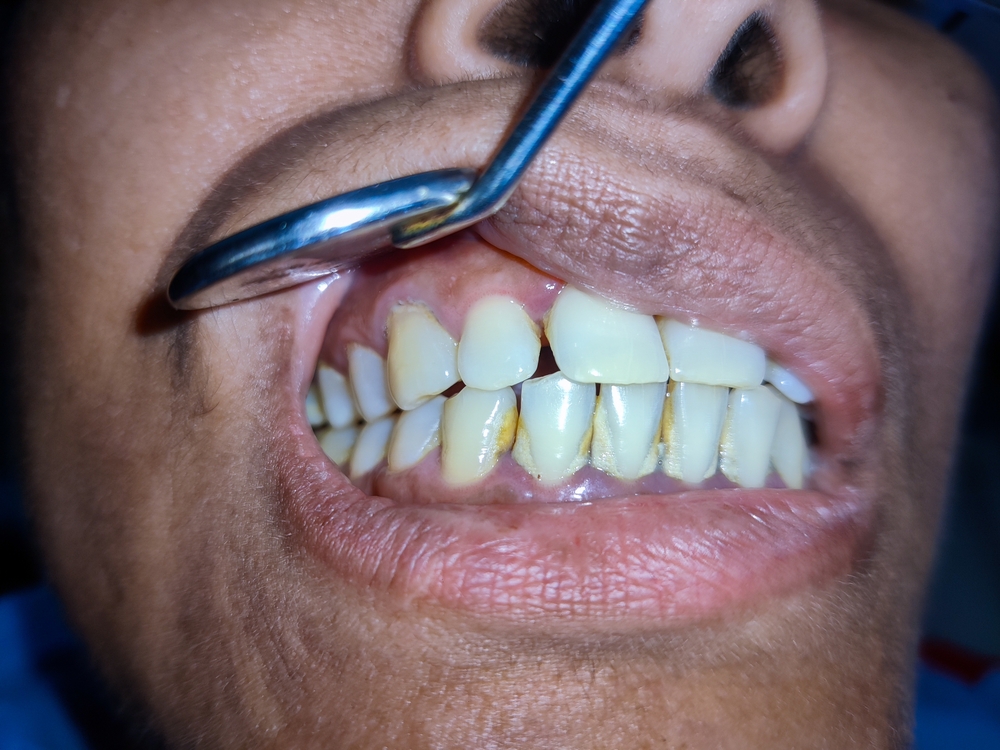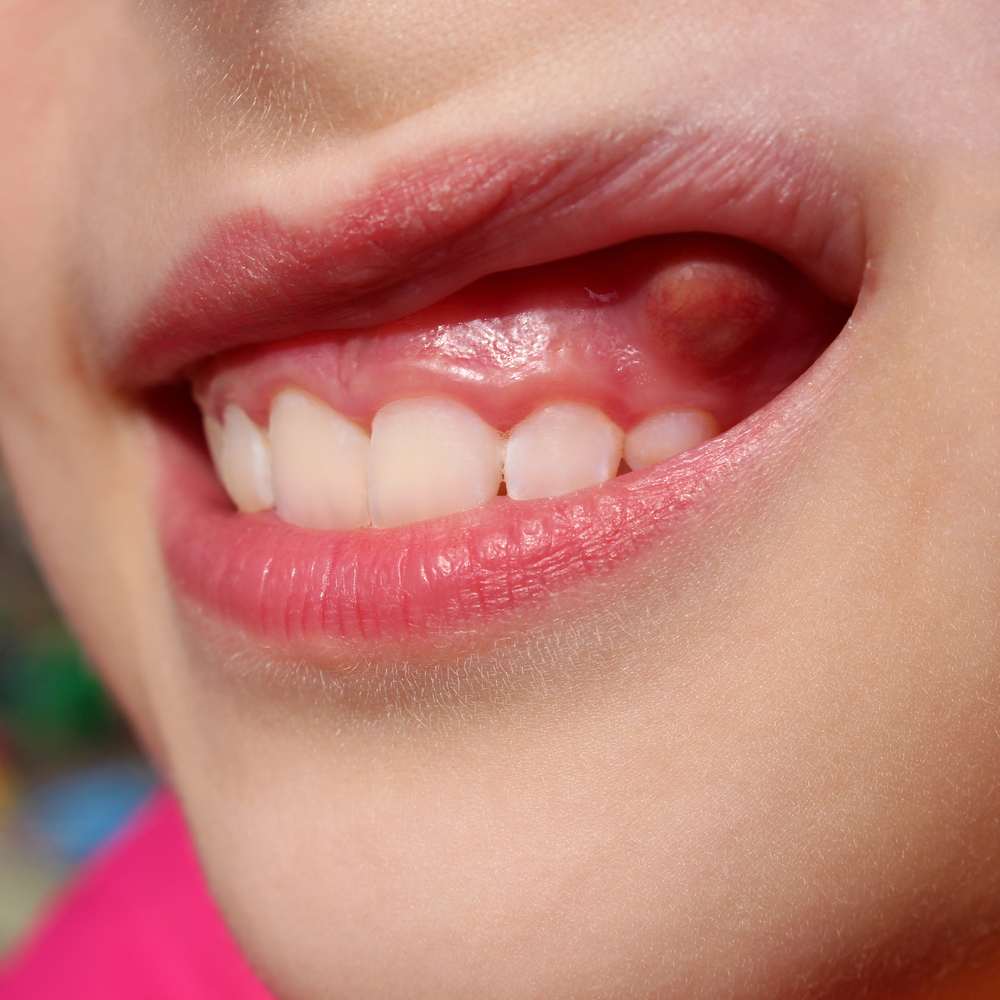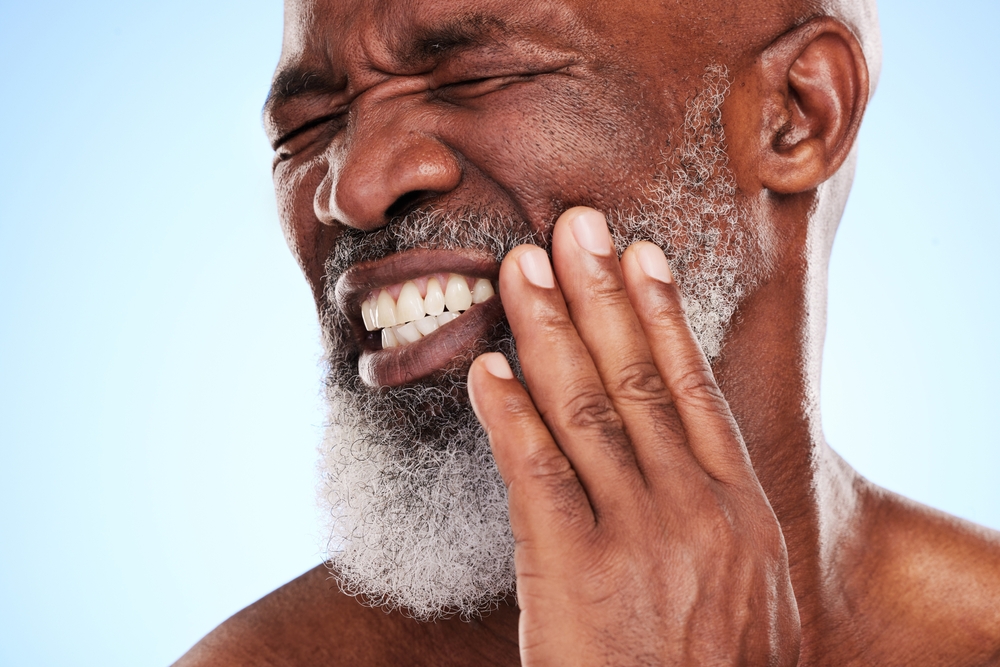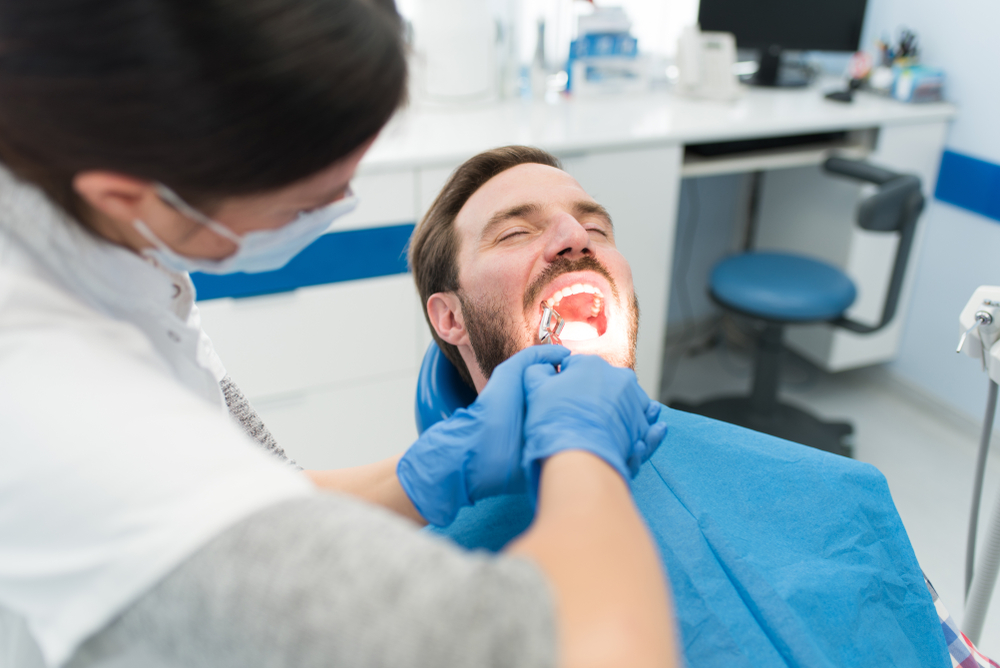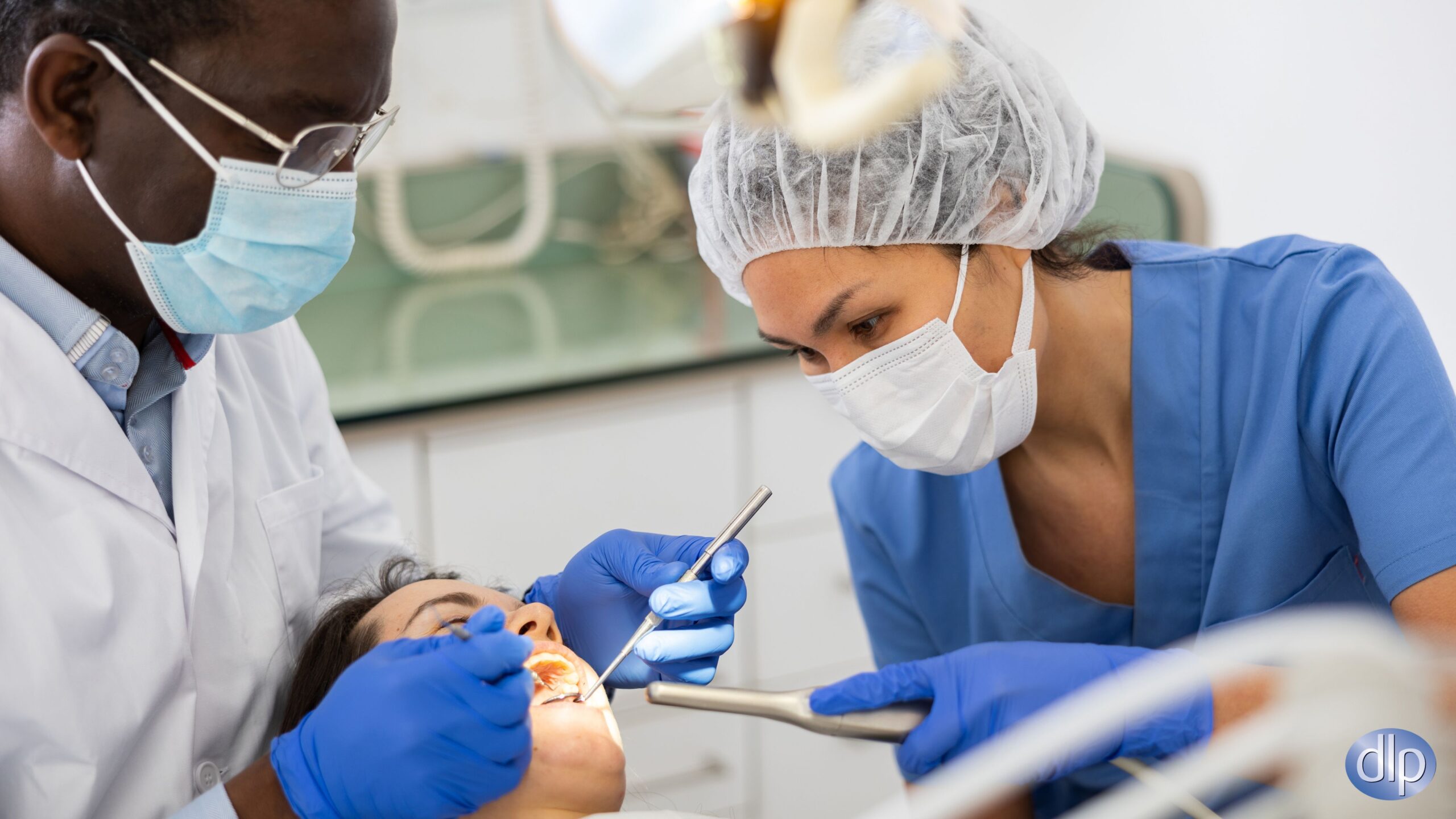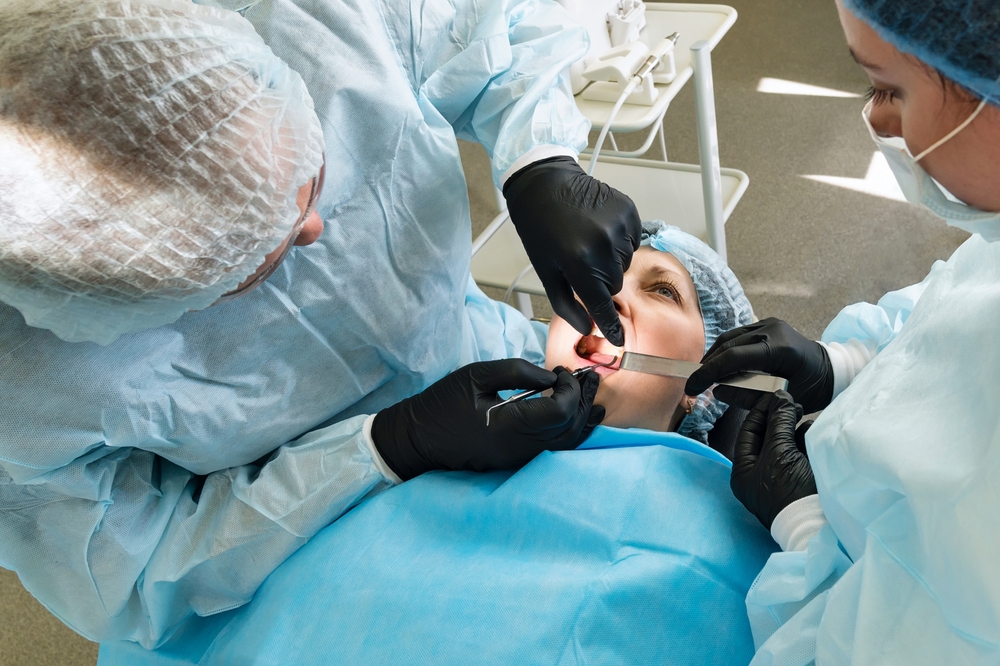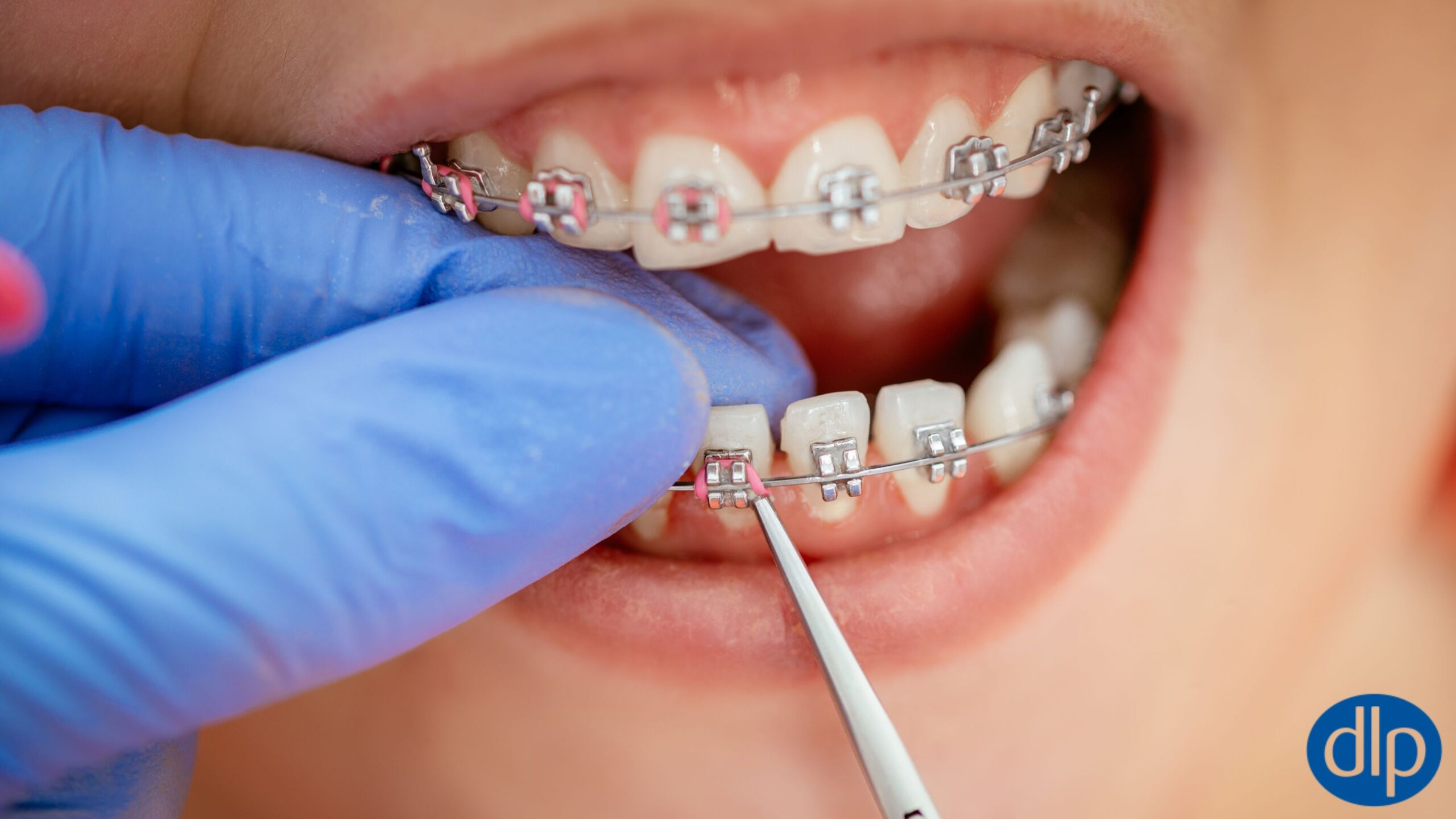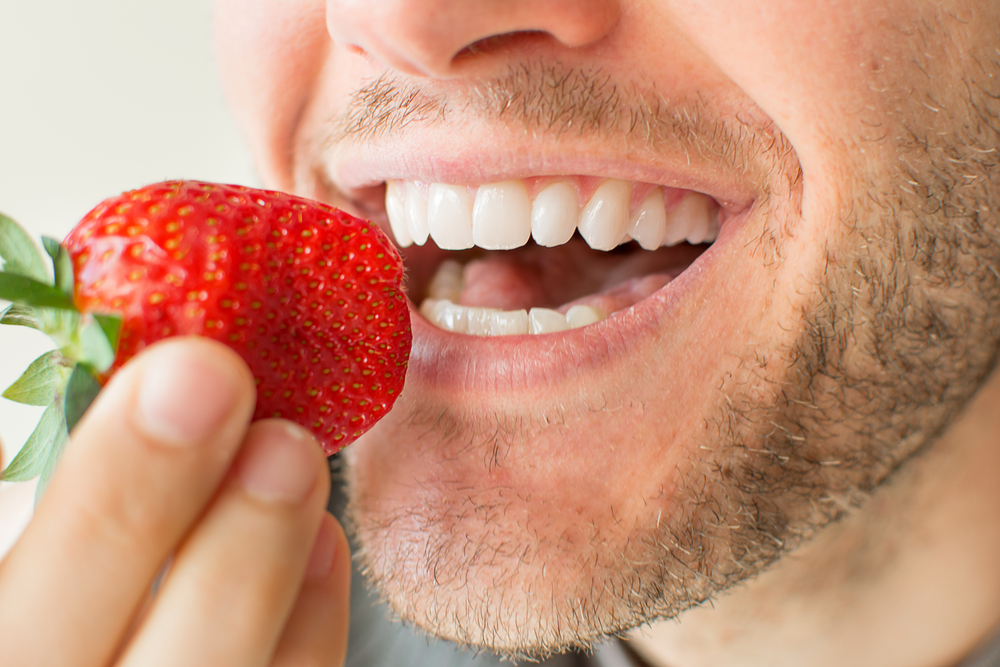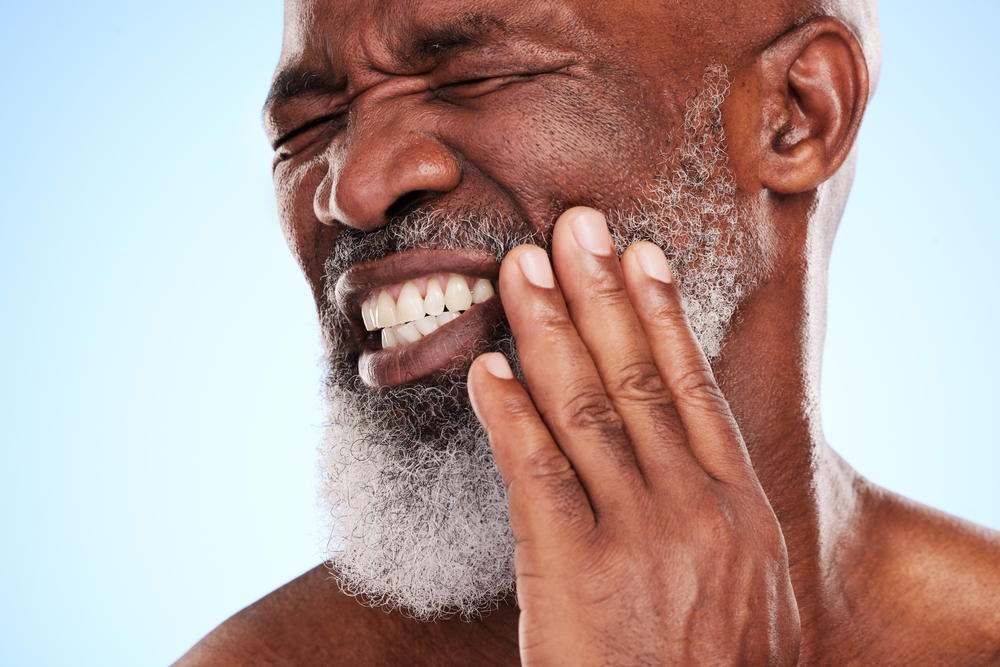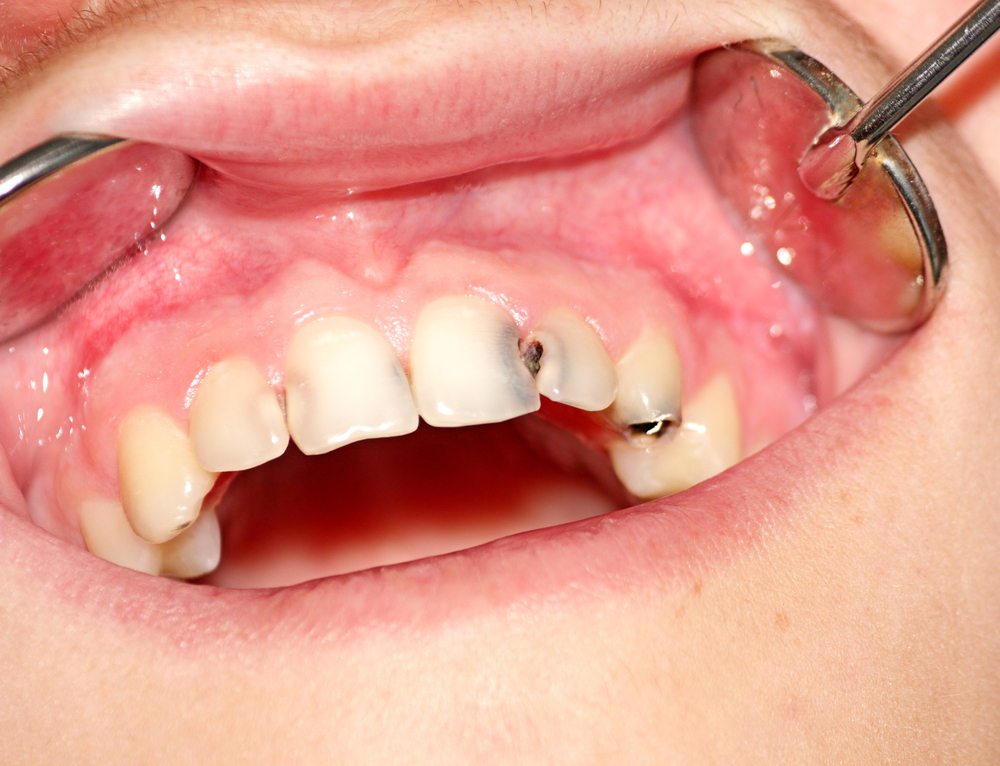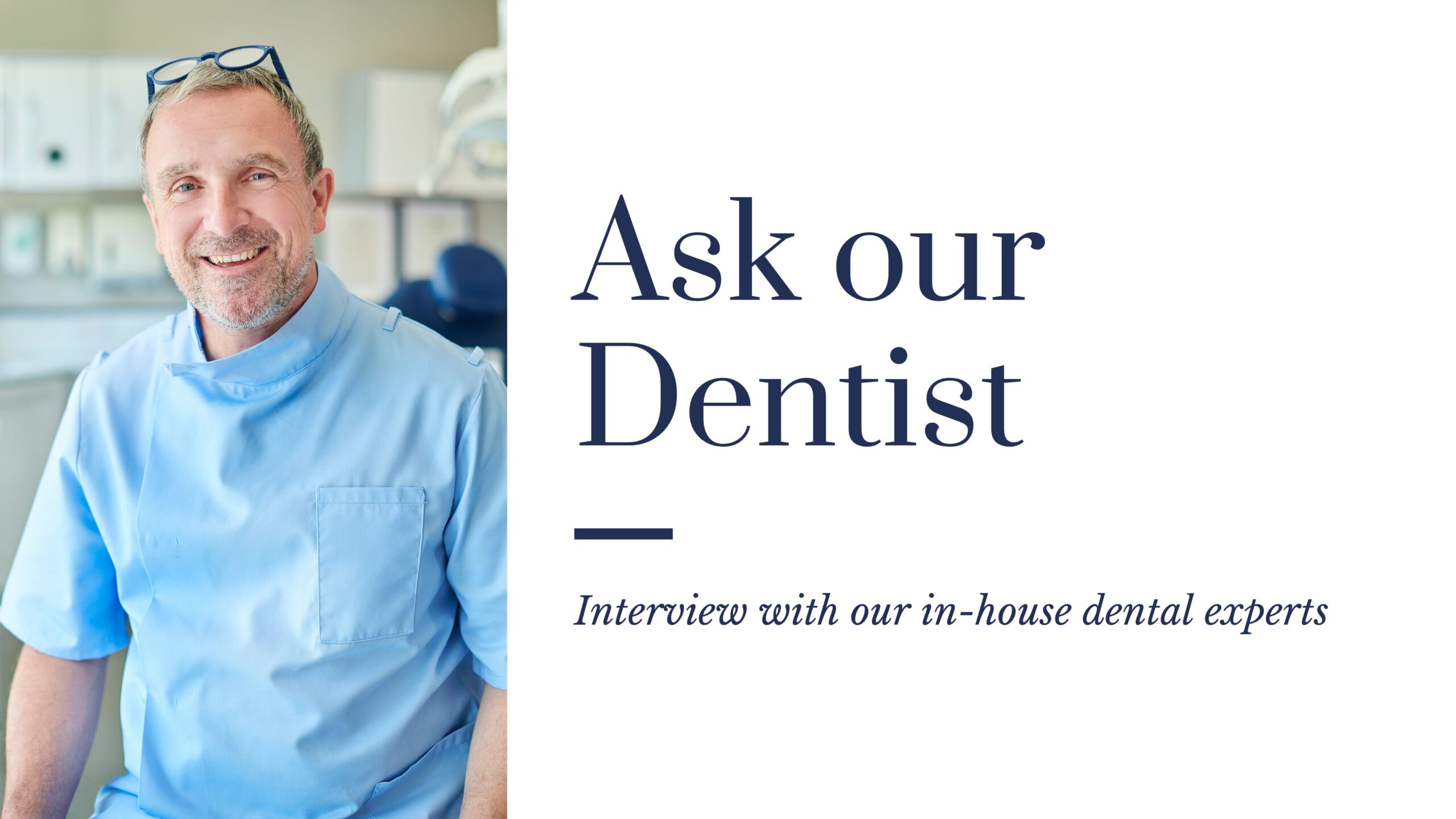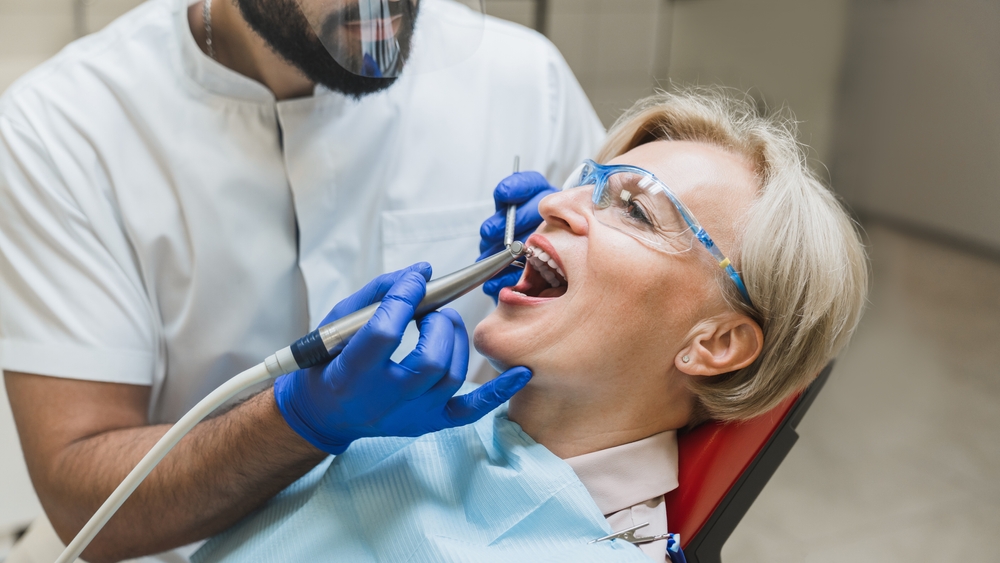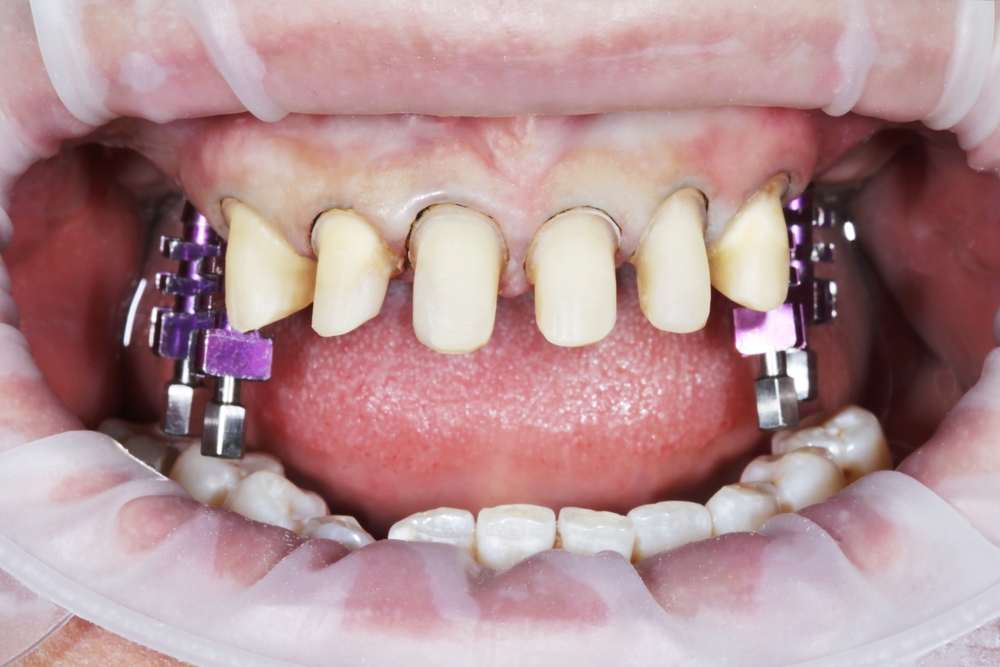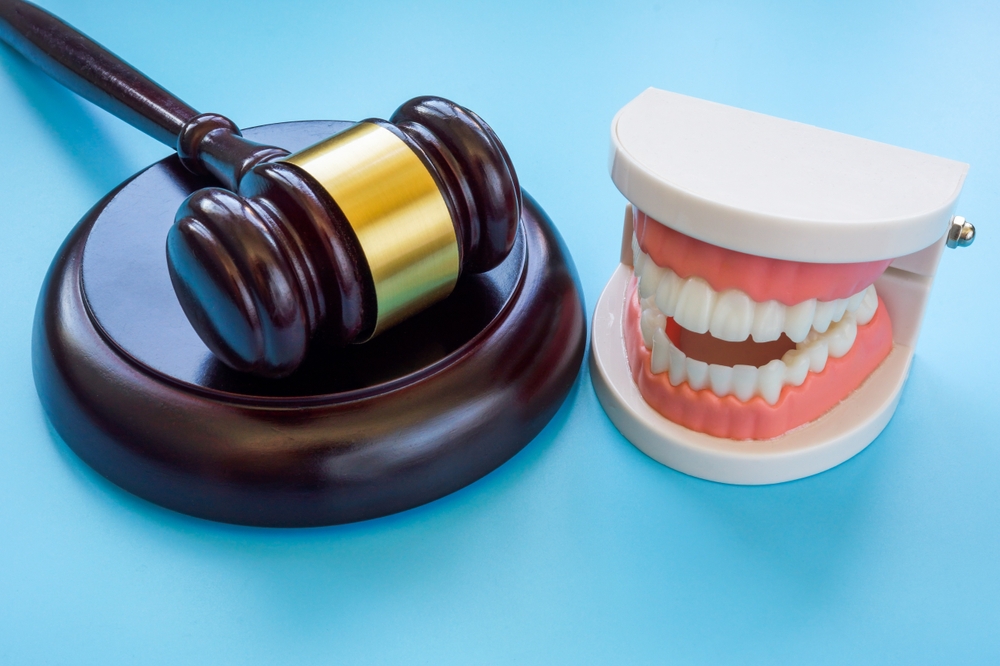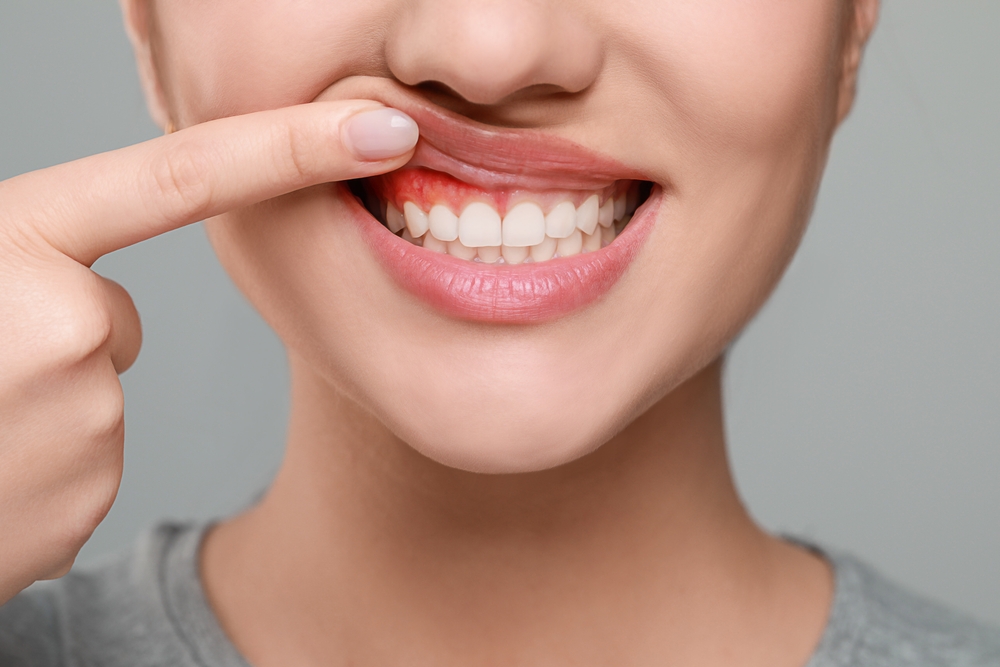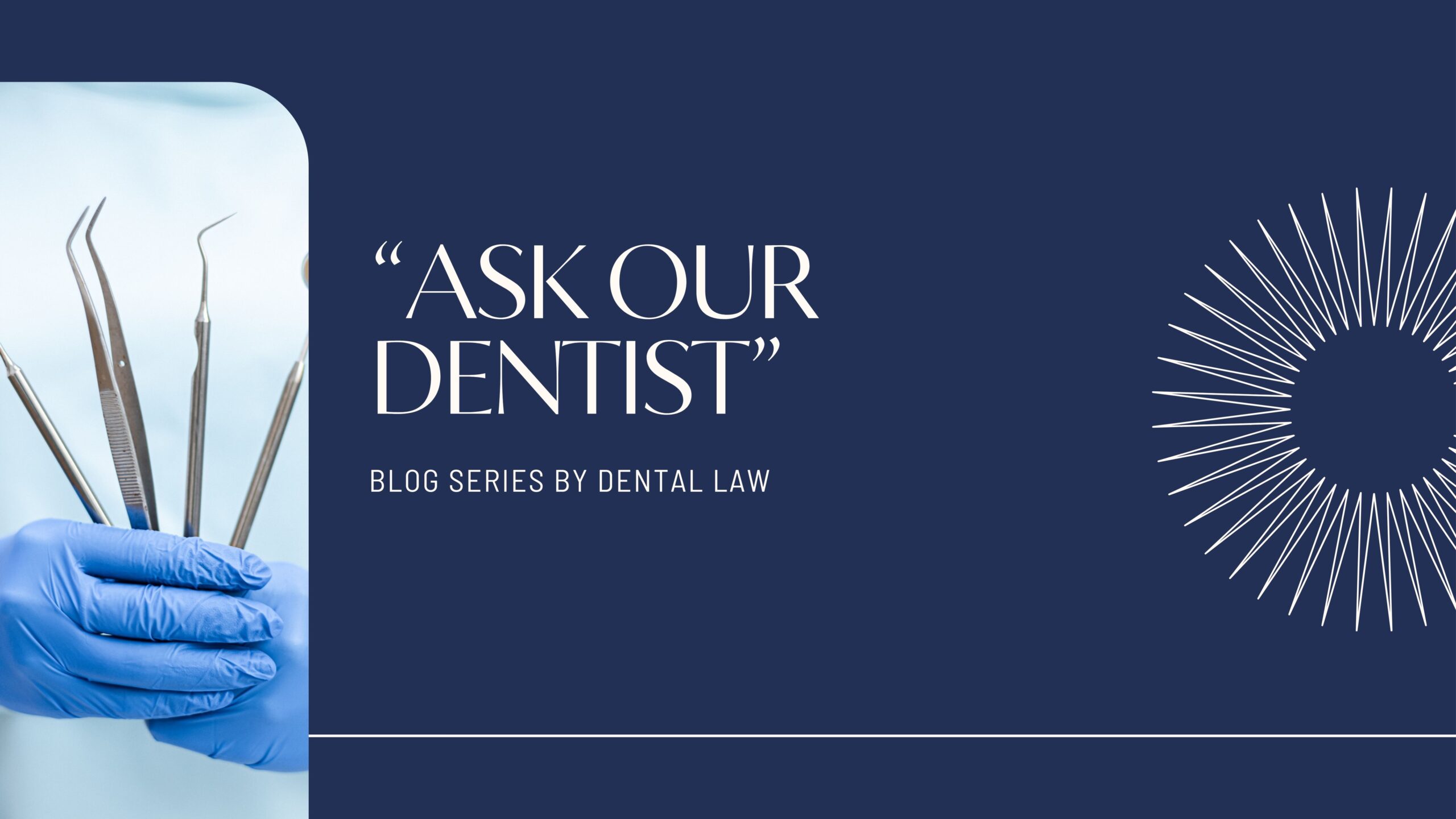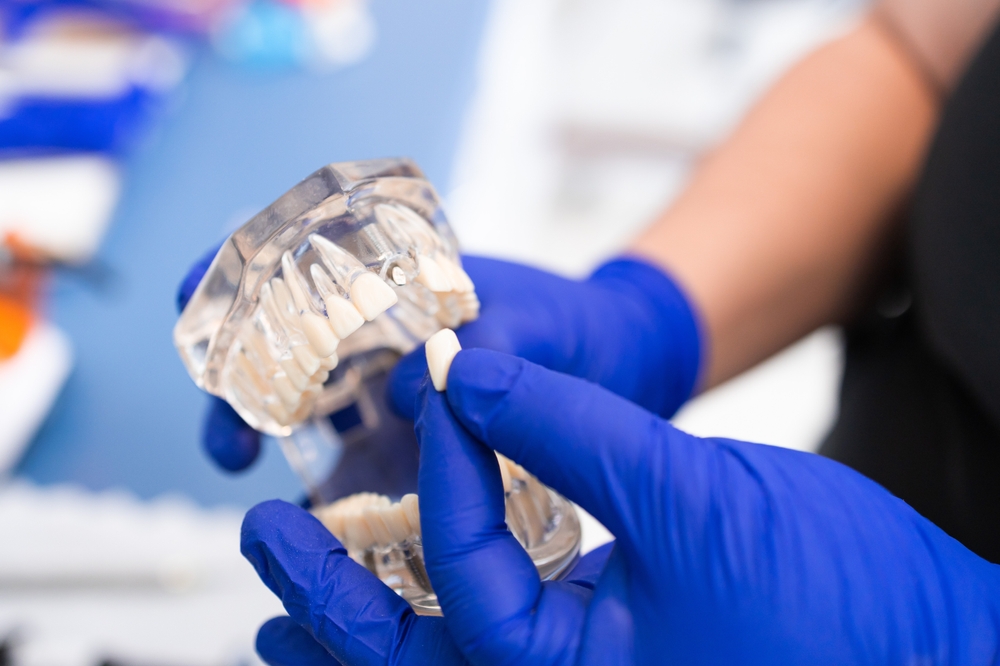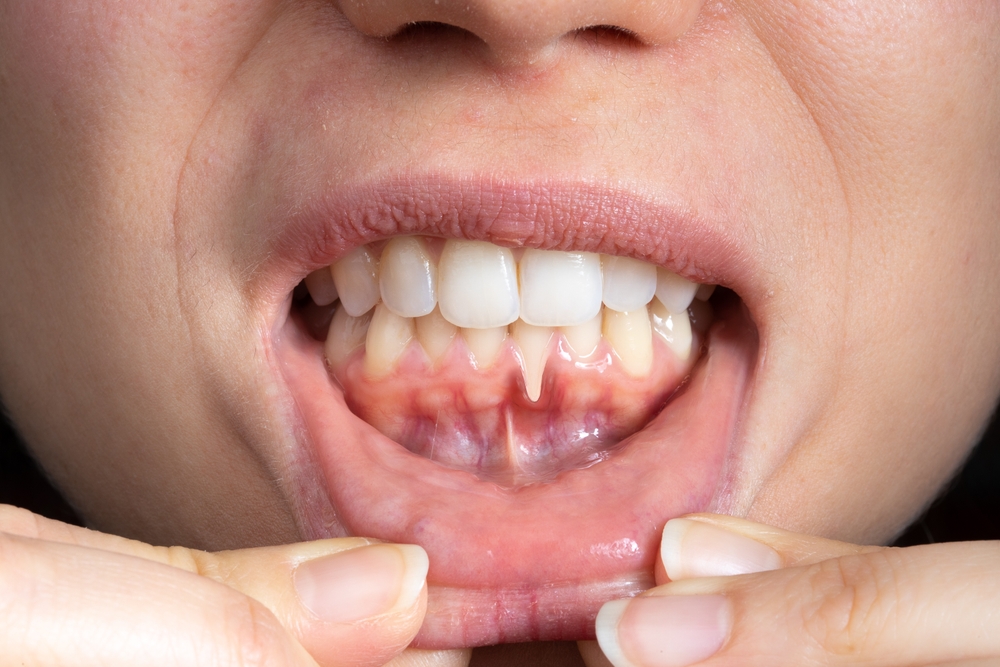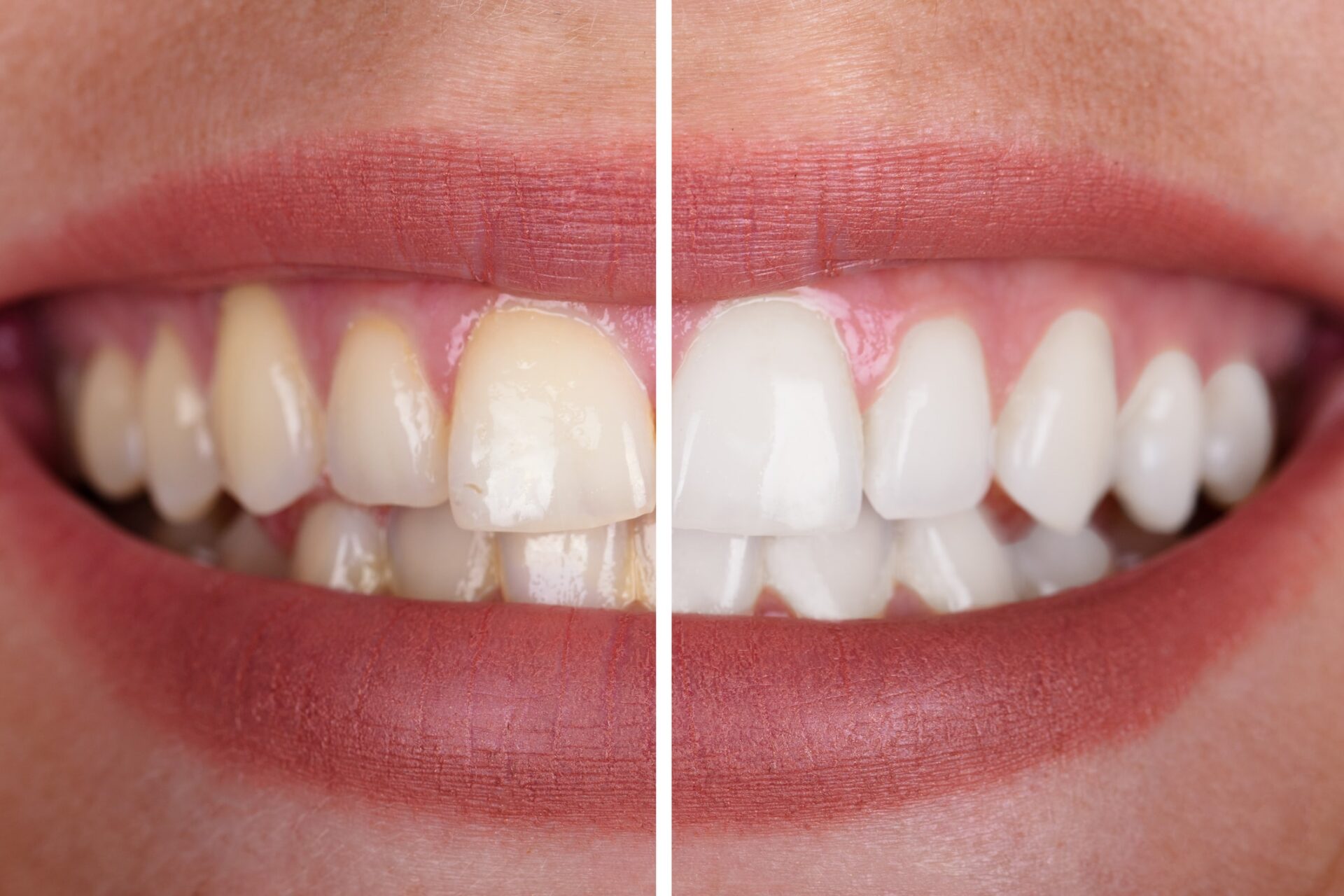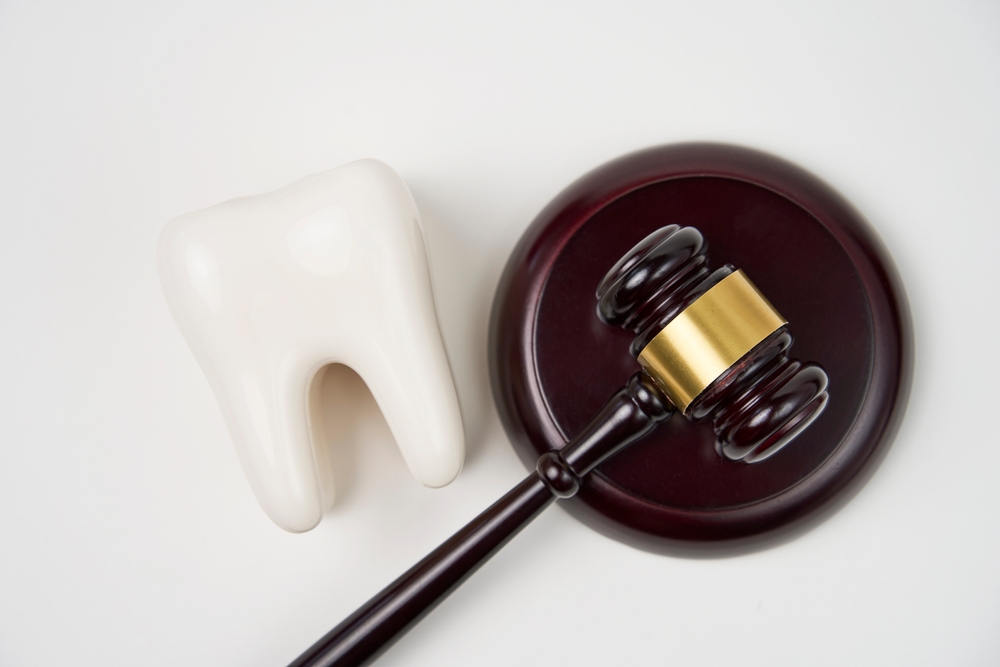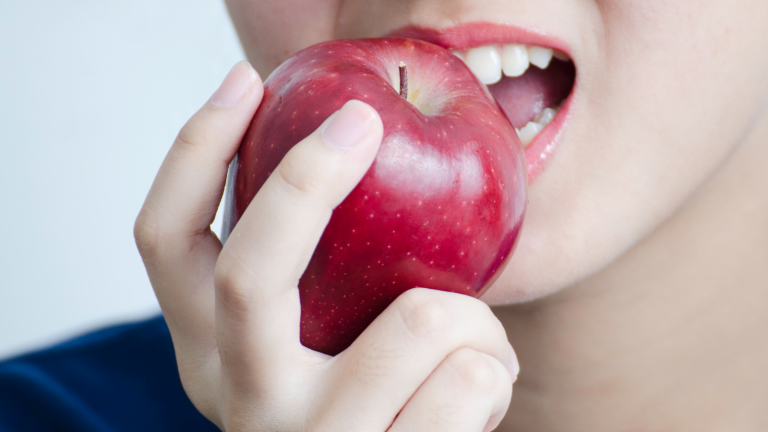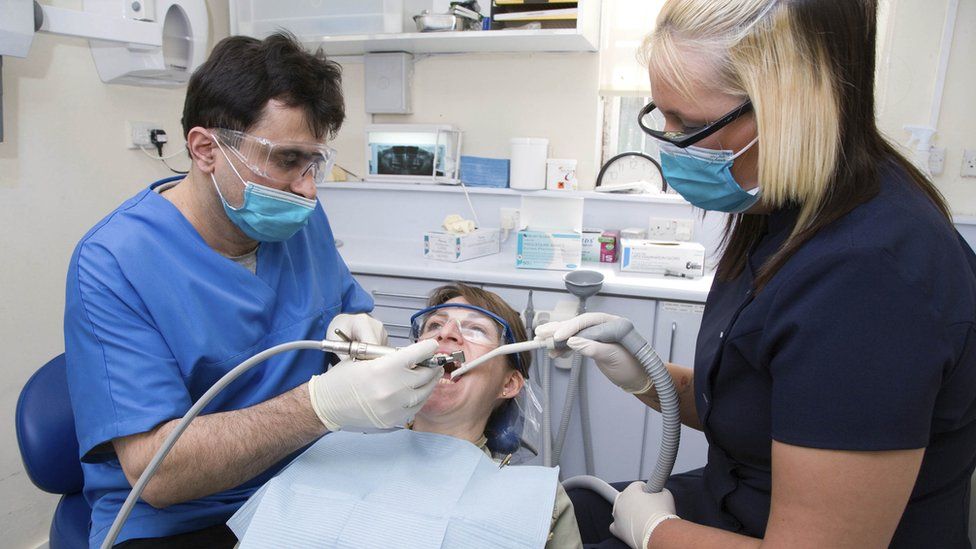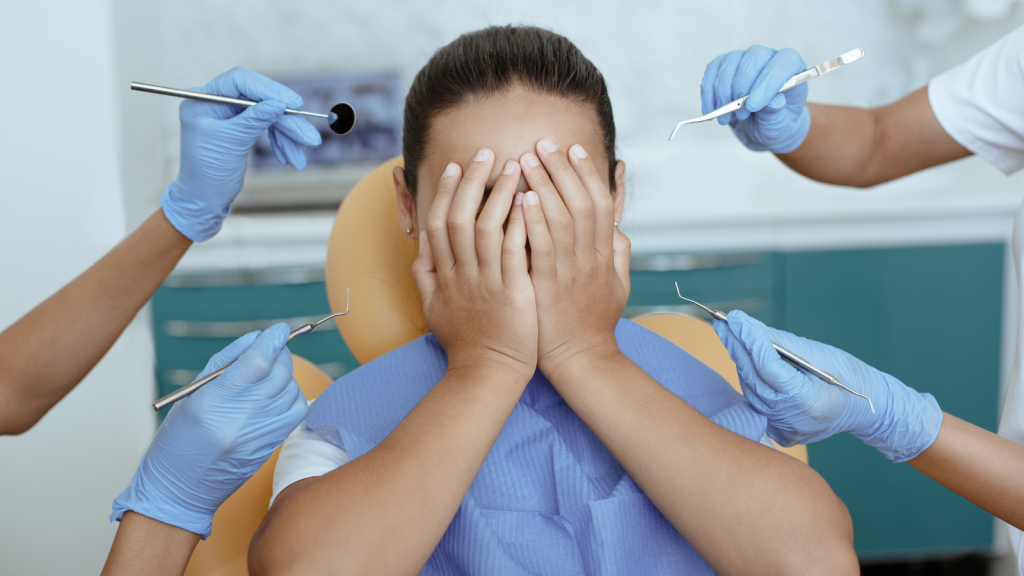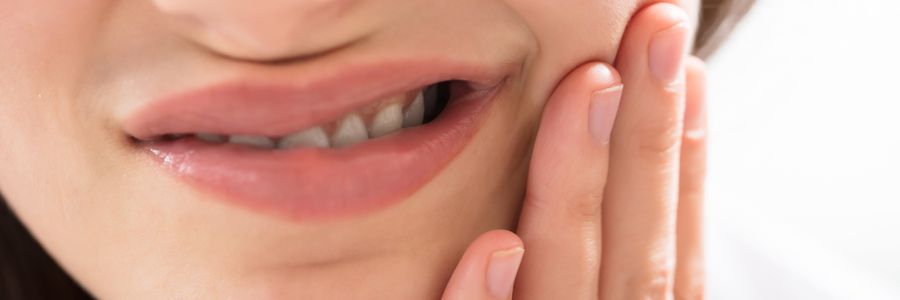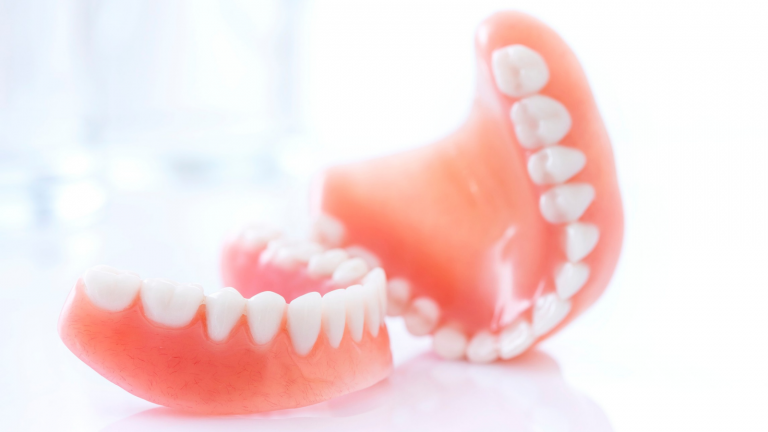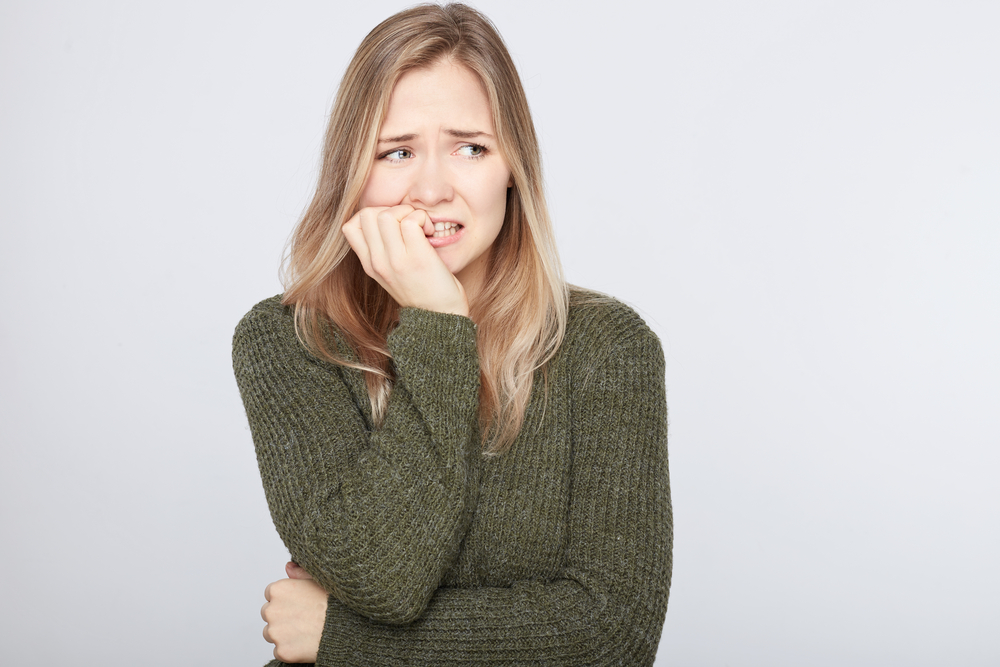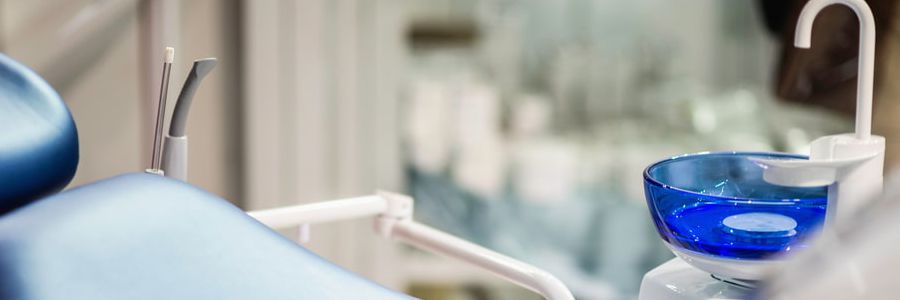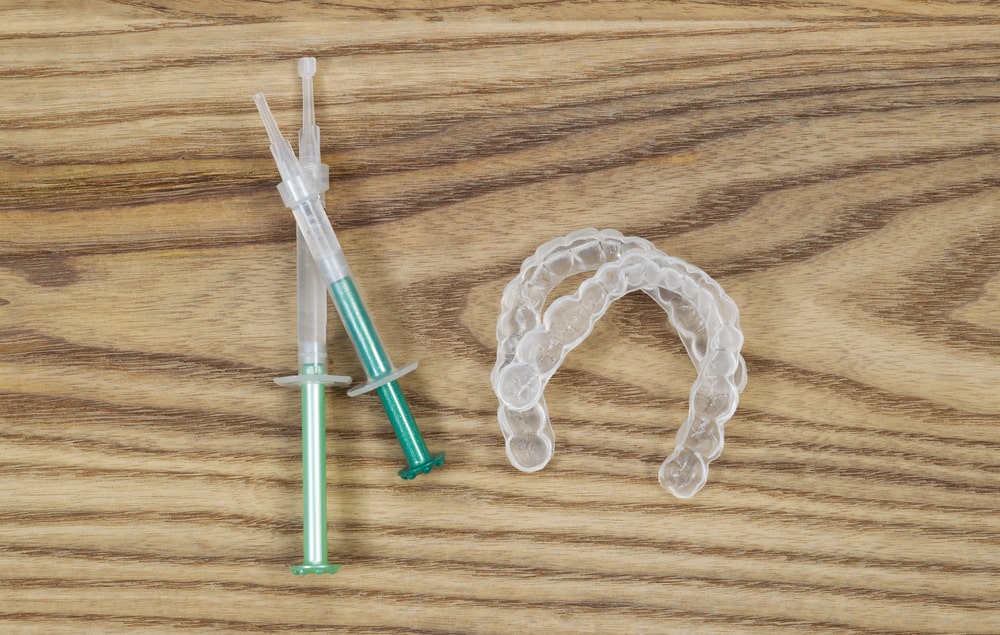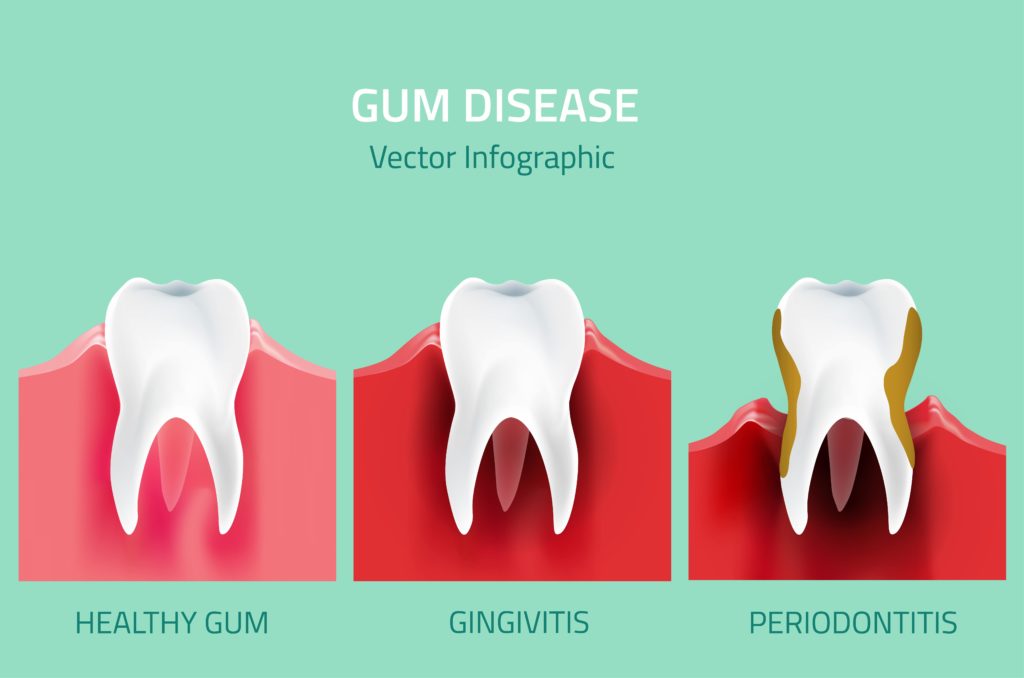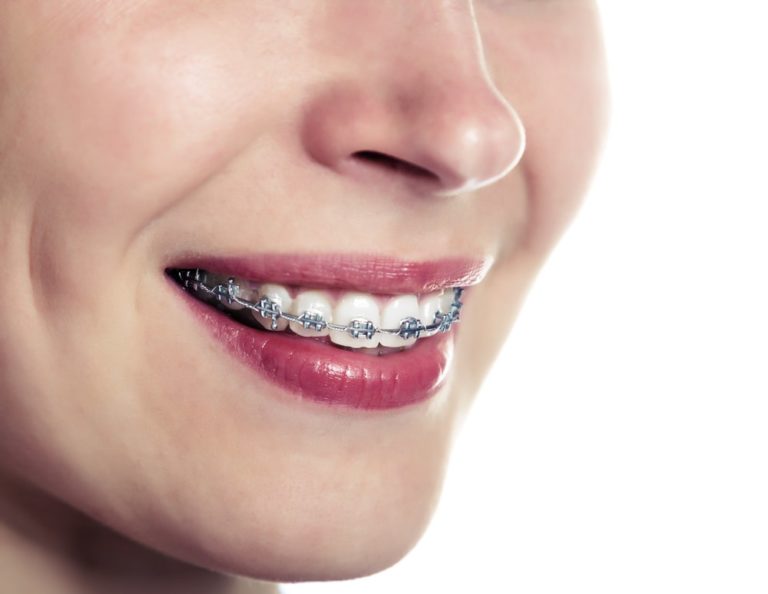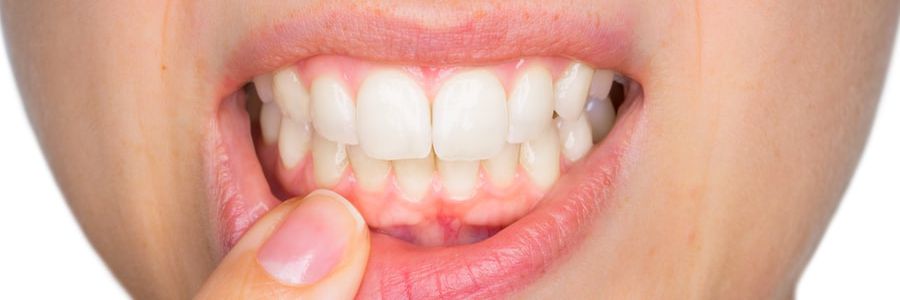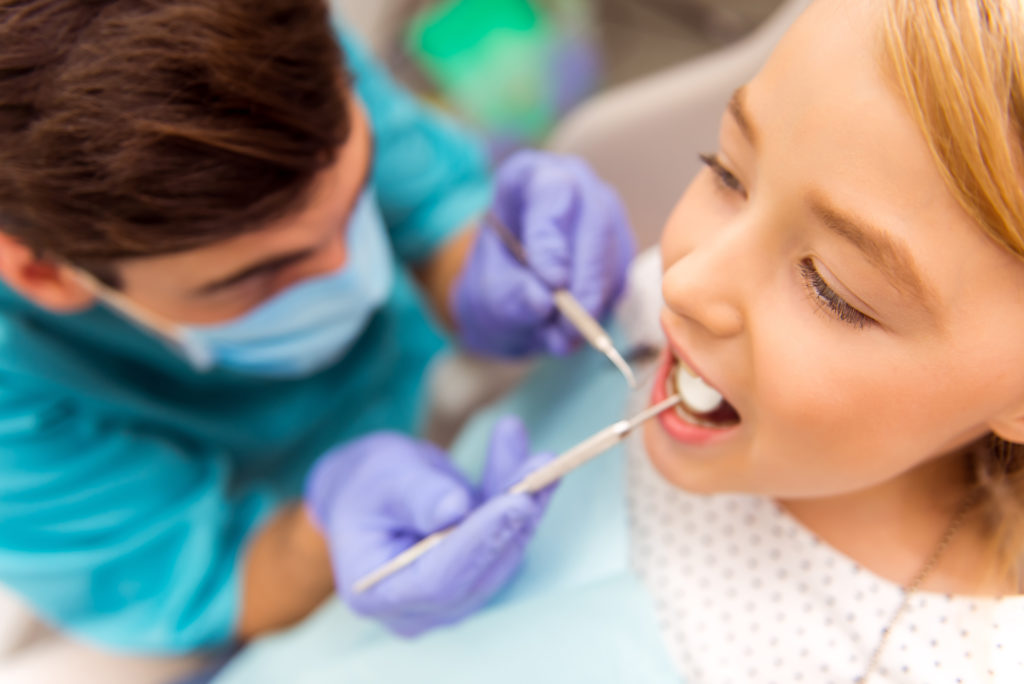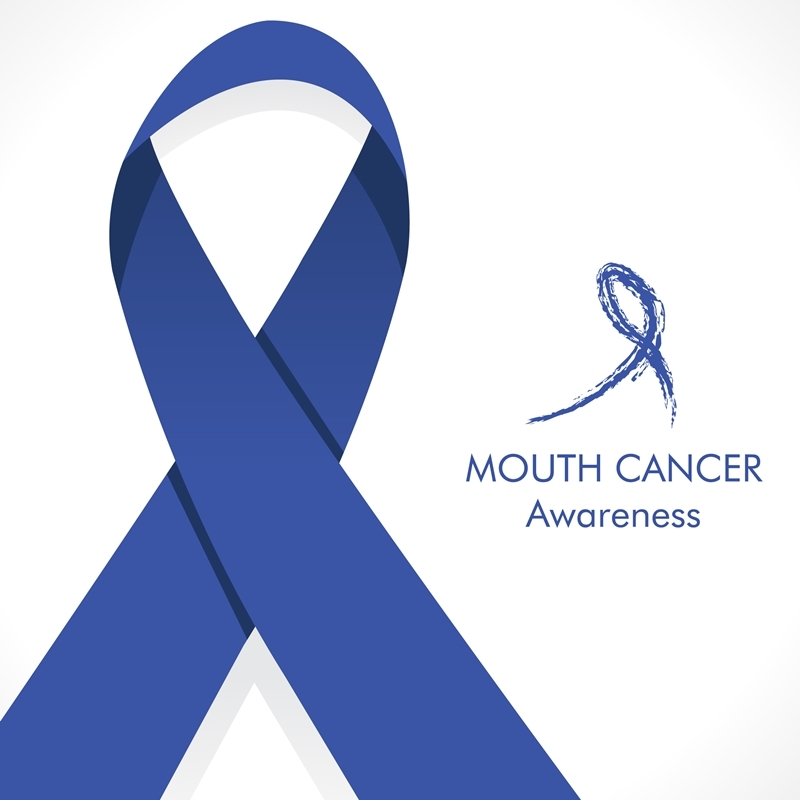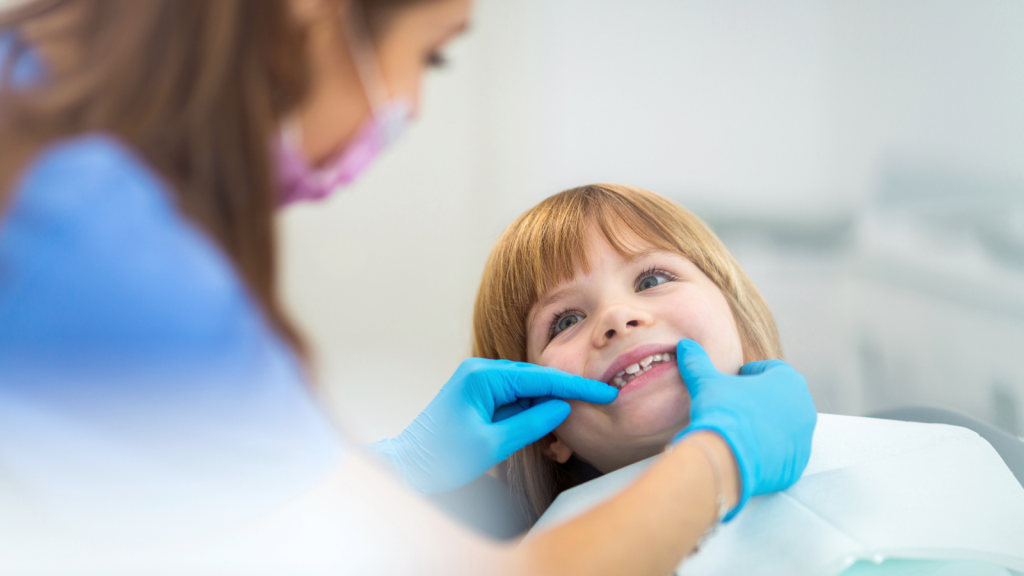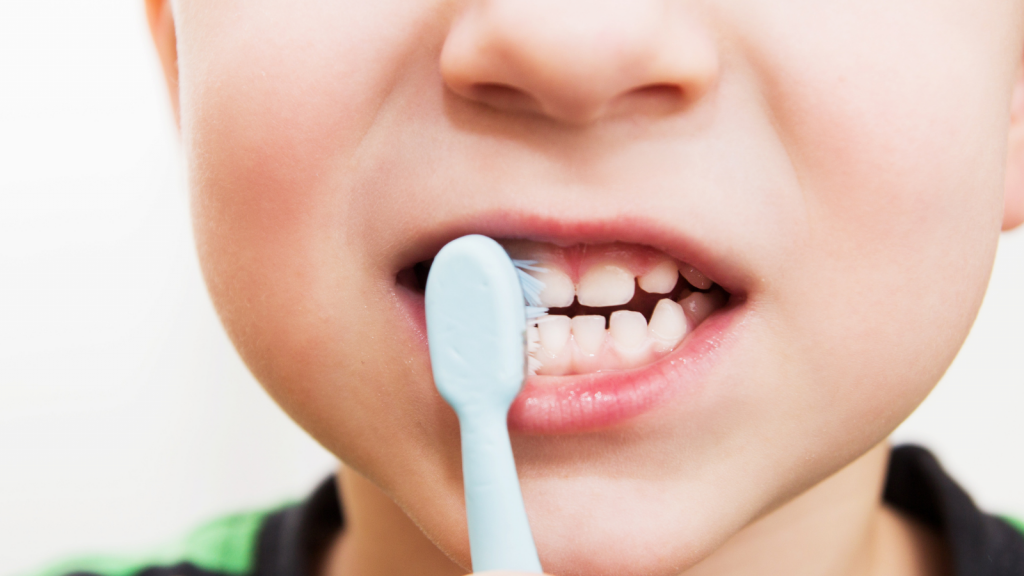12th June 2025
Oral Health and Systemic Diseases: The Numbers Don't Lie
Maintaining good oral hygiene is an essential part of your overall well-being. Not only does good oral health make for a bright smile, but it can also help you to prevent diseases caused by poor dental hygiene.
12th June 2025
Dental Insurance Trends: Who Is and Isn't Covered?
The British dental industry is always changing, and the British government is currently making moves towards reforming the field. One area that is seeing particular changes is the dental insurance sector. Modern dental insurance trends show that more people than ever are taking out a policy, instead of paying for their appointments as and when they're needed.
6th June 2025
National Smile Month: What to Do If a Dentist Ruins Your Smile
Your smile is one of the first things people notice about you and is a powerful asset for making that crucial positive first impression. And putting your trust into a dental professional with it, is no small matter. So, when that trust is broken and results in poorly performed dental treatment, severe or persistent pain in your mouth or damage to your smile, it can be devastating physically, emotionally and professionally.
5th June 2025
The Rise of Cosmetic Dentistry: Trends & Statistics
27th May 2025
Can Bite Block Braces Damage Teeth?
Can bite block braces damage teeth? Find out the answer to this question and many more in our in-depth guide about bite blocks with Dental Law
27th May 2025
How Long Does a Dental Negligence Claim Take?
How long does a dental negligence claim take? Find the answer to this question and many more in our in-depth guide to dental negligence cases
27th May 2025
How Much is Dental Insurance?
How much is dental insurance? Compare costs and plans with the Dental Law Partnership and learn when dental negligence claims may offer a better solution.
27th May 2025
NHS vs Private Dentists
27th May 2025
What Causes Dental Abscesses?
Find out all about what causes a dental abscess, the symptoms of a tooth infection and how to treat an abscess with Dental Law. Start your claim today!
27th May 2025
The Best Treatments for Gingivitis
Understanding the best treatments for gingivitis can help you treat this oral health condition properly, enabling you to preserve your smile.
27th May 2025
How to Get Rid of a Dental Abscess: Treatment Options
Wondering how to get rid of a dental abscess? Look no further than the Dental Law Partnership and our expert guide, sure to help you with your treatment query.
12th May 2025
Root Canal Awareness Week: Filing a Claim After Failed Root Canal Treatment
If you are experiencing severe pain after your treatment which does not go away, there is a chance that the root canal was unsuccessful. This is a sign of major root canal complications and is often called a root canal failure.
16th April 2025
Are Dental Abscesses Dangerous?
A dental abscess will require immediate attention from your dentist, so it's important not to dismiss symptoms like toothache and gum inflammation, as these signs could indicate an infection or abscess.
16th April 2025
Employee Spotlights: The Superhero’s Behind The Dental Law Partnership
Behind every successful claim, every court hearing, and every compensation awarded, is a team of dedicated and compassionate professionals who work tirelessly to help patients seek the justice for dental negligence they deserve. They are the driving force, the reason behind our continued success, the secret sauce to our law firm – Meet the Team at The Dental Law Partnership!
8th April 2025
Stress Awareness Month: Stress Related to Dental Negligence
A common worry we see time and time again surrounding our dental negligence claim patients, is the mental toll the injury caused by dental negligence can take. It is at the most vulnerable of times that we put faith into dental professionals who are experts in their fields of work, we trust their diagnosis, their judgement of the symptoms, and we trust the treatment they provide is always going to be industry standard. We do not consider that this trust may be misplaced, or that things may go wrong.
25th March 2025
How Long Do I Have to Make a Dental Negligence Claim? Is There a Time Limit?
The time limit for making a dental negligence claim is three years from the date the negligence occurred, or from when you first became aware of the negligence. There are exceptions for patients
24th March 2025
What is Gingivitis?
What is gingivitis? It’s a common yet often overlooked dental condition that affects millions of people around the globe each year. Whilst gingivitis is a mild form of gum disease, if left untreated it can lead to more serious oral health issues, such as periodontitis and tooth loss.
24th March 2025
The Risks of Veneers in Turkey
Over the past few years, dental tourism in countries like Turkey has surged in popularity. Many patients are drawn in by the promise of affordable veneers and a perfect smile, but the risk of 'turkey teeth gone wrong' is a growing concern.
18th March 2025
What is Dental Trauma?
18th March 2025
Different Dental Injuries Explained
Discover the different types of dental injuries, their causes and how to claim compensation for negligence. Learn about your legal options with Dental Law
18th March 2025
How Does Smokeless Tobacco Affect Your Dental Health?
This is an informative piece, designed to inform the reader about smokeless tobacco and its link to dental negligence, whilst also highlighting Dental Law as an authoritative source.
18th March 2025
How to Claim Money Back for Bad Dental Treatment
Wondering how to claim money back for dental treatment? Dental Law can help you claim compensation for bad dental treatment - find out more here!
18th March 2025
What Is a Dental Filling?
What is a filling and why might you need one? Learn all about this dental treatment and how you can claim for dental negligence if something goes wrong
5th March 2025
The Dental Law Partnership Recognised in Legal 500 UK 2025
You may have seen The Dental Law Partnership have once again been recognised in the 2025 Legal 500 rankings, positioning them as a Top Law Firm for Dental Negligence Claims in the UK.
17th February 2025
What Are The Most Common Types Of Dental Negligence I Should Be Aware Of?
It’s important as a patient that you are made aware of the ways in which under law you should be treated by your dentist so that you do not fall victim of negligent dental treatment. Some of the most common types of dental negligence claims Dental Law settle daily include: Failure To Treat, Failure To Diagnose, Failure To Obtain Patient Consent & Injury Claims.
13th February 2025
Does a Tooth Extraction Hurt? Our Top Tips for Reducing Pain
13th February 2025
How to Find an NHS Dentist: A Complete Guide
7th February 2025
Dental Negligence Claims Explained
Has your dentist failed to diagnose tooth decay? Has your dentist extracted the wrong tooth? Have you experienced failed treatment? The Dental Law Partnership are the leading specialist dental negligence solicitors in the UK and can help you to build a strong compensation case against your dentist.
31st January 2025
Your Guide on How to Manage Jaw Pain After Dental Work
31st January 2025
How Often Should You Have a Dental Check-Up?
21st January 2025
New Year, New You: Dental Resolutions You Can Stick To
The New Year is the perfect time to try and start new habits, and improving your dental care will bring with it a whole host of benefits for your overall health.
7th January 2025
Dental Law: Year in Review 2024
To help welcome in the new year, we have gathered a roundup of everything the Dental Law team got up to in 2024. Let’s explore some of our achievements from the last year.
17th December 2024
How to Manage Nerve Pain: An In-Depth Guide
If you've experienced nerve damage as a result of dental negligence, knowing how to manage nerve pain is likely a major priority for you. It can be extremely distressing to undergo nerve trauma - particularly if the reason for your injury is due to a negligent dentist.
17th December 2024
Does Getting a Tooth Pulled Hurt? Here's What to Expect
Does getting a tooth pulled out hurt? If you're a patient needing a tooth extracted, the potential for pain is likely a key concern that you'll have before your surgery.
17th December 2024
How to Beat a Sugar Addiction and Protect Your Smile
Are you searching for trusted advice on how to beat sugar addiction? The experts at the Dental Law Partnership are here to assist. While most people understand that there’s a clear link between diet and dental health, they often don’t appreciate just how destructive sugar can be to your teeth.
13th December 2024
12 days of Christmas (DLP Version) Dental Negligence
Festive cheer is among the Dental Law team and we want to share our new Christmas jingle with you. 12 days of detecting Dental Negligence from The Dental Law Partnership.
21st November 2024
Mouth Cancer Early Detection: Know the Signs, Spot the Signs
Mouth Cancer Awareness Month is an annual campaign dedicated to raising awareness of mouth cancer. Mouth cancer is the ninth most common cancer in the UK, with the majority of deaths resulting from late detection. Find out the most common signs and symptoms today.
14th November 2024
Are Veneers Painful?
Are veneers painful? Understandably, you might be pondering this question if you're currently considering having veneers fitted, so the Dental Law Partnership is here to help you with your dilemma.
14th November 2024
Is Nerve Damage Permanent Following Dental Negligence?
If you've experienced nerve damage as a result of dental negligence, you'll likely find yourself wondering, 'Is nerve damage permanent?' It's a tricky question to answer, as nerve damage after dental work can be both temporary and permanent, depending on the extent of your dental injury and the nerve that has been affected.
12th November 2024
Are Veneers Permanent or Temporary?
If you're considering having veneers fitted, there's a good chance you'll find yourself pondering, 'Are veneers permanent or temporary?' It's not the sort of question that can be just answered in one word though, as there are several different types of veneers available at British dental surgeries at the moment, which is why we've created this blog.
12th November 2024
What Happens After Tooth Extraction: A Complete Aftercare Guide
If you have a tooth extraction procedure coming up in the near future, you may find yourself asking, 'What happens after tooth extraction?' Aftercare is essential for any dental procedure, but it's particularly important after invasive surgeries like tooth extractions, helping to support healing and prevent further complications from arising.
7th November 2024
What’s the Point of Wisdom Teeth?
What's the point of wisdom teeth? It's a common question for dental patients who find themselves in pain due to their wisdom teeth, and it's completely understandable - after all, if wisdom teeth aren't a necessity, why do we have them?
7th November 2024
Why Do I Still Have Bad Breath When I Brush My Teeth?
If you regularly brush your teeth twice a day and find that you still have bad breath (halitosis) afterwards, it can be particularly damaging to your confidence and mental well-being. If you take good care of your oral hygiene and you still have halitosis, it could be a sign of something more serious at play.
7th November 2024
Composite Veneers vs Porcelain Veneers: What's the Difference?
When it comes to creating the perfect smile, composite veneers vs porcelain veneers is a common query many people face. Dental veneers are one of the most popular cosmetic dentistry procedures at the moment, often used as an alternative to teeth whitening or dental bonding.
7th November 2024
How Do Dentists Remove Teeth? Understanding the Extraction Process
If you're due to have a tooth extracted soon, you'll likely find yourself wondering about what the surgery entails. It's perfectly reasonable to ask “How do dentists remove teeth?” before having an extraction carried out.
6th November 2024
Keeping Your Teeth Healthy during the Winter
The year is just racing by, with Halloween over for another year, we can now look forward to more festivities in the coming months. Bonfire Night, Christmas Markets, Light Switch Ons, and all the Christmas goodness this time of year brings. But let’s not forget with all that comes more sweet treats, more chocolate selection boxes and a higher chance of dreaded cavities.
28th October 2024
How to Improve Teeth Health in 5 Simple Steps
If you are wondering how to improve your teeth health, you’ve come to the right place. Here, our team of expert dental legal advisors share 5 simple ways to improve the health of your teeth to ensure you have a perfect pearly white smile for years to come!
28th October 2024
The 15 Best Foods for Gum Health
If you are on a journey of looking after your teeth, you may be wondering what foods are the best for gum health. Well, you’re in luck! In this blog, our team of expert dental legal advisors share 15 of the best foods for gum health, to help prevent the early stages of gum disease and gingivitis.
28th October 2024
How Long Does Nerve Damage Take to Heal?
If you've suffered from dental nerve pain or damage during a dental procedure, you may find yourself pondering the question of how long does nerve damage take to heal. Dental nerve damage is rare but can still occur during situations involving dental negligence.
24th October 2024
Trick or Teeth: How to keep your children’s teeth healthy this Halloween!
Halloween is already scary enough, without the overwhelming fear of child tooth decay. Did you know? Tooth decay is the most common reason for hospital admissions among five to nine-year-olds in England.
10th October 2024
National Orthodontic Health Month: Tips for caring for your Braces
October commences the start of National Orthodontic Health Month (NOHM). A yearly-calendar special for dental professionals, dedicated to celebrating healthy smiles, promoting orthodontic benefits and educating individuals of the importance of proper oral care during orthodontic treatment.
8th October 2024
What Are the Main Signs of Infection After Dental Work?
Dental infections can occur after most treatments, although thankfully they're not a common occurrence.
8th October 2024
Recognising the Signs of Nerve Damage After Wisdom Tooth Extraction
Suffering from nerve damage after wisdom tooth extraction is rare, but it can be extremely distressing if it happens to you. Wisdom teeth removal is a routine dental procedure that many people undergo as their wisdom teeth emerge, often in their late teens or early twenties.
30th September 2024
Five Common Examples of Dental Negligence You Shouldn't Ignore
Experiencing dental negligence first-hand can be extremely distressing, but learning about the common examples of negligent dental care might help you understand your situation more clearly, and help you work out what the next steps are for you.
23rd September 2024
Ask our Dentist “What is root canal treatment?”
Find out about one of the most common dental treatments in the UK, root canal treatment, understand the ins and outs of the procedure and what should happen during a successful root canal treatment.
5th September 2024
NHS vs Private Dentistry
With the new government still concerned by the state of dentistry in the UK, the GDC have recently published their latest research on public views and experiences of dental care in the UK, especially within the NHS.
29th August 2024
Veneers Gone Wrong: Exploring Your Legal Options
Have your veneers gone wrong? Dental veneers (which involve placing a thin tooth-coloured shell over a tooth), are a popular procedure for people searching for the perfect smile, but the consequences can be far-reaching if something goes wrong.
27th August 2024
Back to school again! Tips for looking after your children’s dental health after the summer holidays
With all the new starts that come with the start of the new school year, let's start fresh with dental health. We asked our dental team for some dental health tips you should be adding to your kids back-to-school checklist.
5th August 2024
Innovative changes around Dental Care for Athletes at Paris 2024 Olympics
From the Euros to Wimbledon, we’ve been blessed with sports across our screens already this summer, but on the 26th of July we saw the commencement of the 2024 Paris Olympics. Over the years research has shown that sportsmen and women are at a significantly higher risk of oral health issues.
30th July 2024
No-Win, No-Fee Personal Injury Claims: What Are They and How Do They Work?
At the Dental Law Partnership, we're a highly experienced team of dental negligence solicitors, helping our clients pursue their dental negligence cases. It’s important to learn exactly what a no-win, no-fee agreement is before starting your claim, so you can be as prepared as possible.
29th July 2024
Is Gum Disease Reversible?
Gum disease (sometimes known as periodontal disease) covers a wide spectrum, from gingivitis through to advanced periodontitis. This means that understanding the causes and stages of the condition is essential in determining its reversibility.
23rd July 2024
Ask our Dentist “How Often Should I Get a Dental Checkup?”
According to health statistics in June 2023 approximately 4 in 10 adults living in England had seen a dentist in the past 2 years. With the dental crisis still so prevalent in the news, we asked one of dental experts “How often should I get dental checkup?”
18th July 2024
Dental Implants vs Dentures: What's the Difference?
If you're considering either of these two treatments, it's important to understand the differences between both procedures, as this will enable you to make the right decision for your needs. At the Dental Law Partnership, we're an expert team of dental solicitors, seeking justice for patients who have suffered from dental negligence.
17th July 2024
Understanding Duty of Care Responsibilities for Dental Professionals
The relationship between patient and dentist is founded on trust - a key element of dental work that ensures effective and compassionate care.
4th July 2024
Can You Treat Gum Disease at Home?
As gum disease is so common, there’s a possibility that you might have a form of the condition, even if it's classed as mild gum disease.
4th July 2024
Dental Bonding vs Veneers: Key Differences
When it comes to cosmetic dentistry, understanding the difference between dental bonding vs veneers is crucial. Both treatment options offer effective solutions for improving your smile, but they’re usually used for different purposes.
3rd July 2024
Benefits of reducing your alcohol intake
Drinking alcohol has been linked to a host of oral health issues including oral cancer, tooth decay and tooth erosion, so let’s dive into the ways reducing our alcohol consumption can lead to a much healthier mouth and overall wellbeing.
17th June 2024
National Teeth Whitening Day
Reality TV show portrayals and the social media frenzy of people obsessed with the idea of perfectly straight, white teeth, are part of the reason a third of people under 35 living in the UK are turning to cosmetic dental treatments. Over time we have been lead to believe that if your teeth do not look a certain way then they are not perfect. And days like “National Teeth Whitening Day” only further fuel that idea.
6th June 2024
Diabetes vs dental health
Do you have diabetes? Do you suffer from oral health problems due to your diabetes? Learn ways to manage your diabetes effectively and keep control of your blood glucose levels to help decrease your chance of infections in your mouth.
23rd May 2024
Dental care on holiday
Dental Care isn't a phrase that comes to mind when your discussing your upcoming summer holiday plans, but with summer fast approaching, read Dental Law's best practices for how to look after your dental care and hygiene whilst on holiday this summer.
20th May 2024
5 ways to improve communication between dentist and patient
It’s no secret that the communication between dentist and patient is an integral part of dental appointments. Especially if you are a nervous patient, it can be hard to vocalise your concerns or needs.
20th May 2024
How to recognise potential negligence in dental care
The roles and responsibilities of a dentist should abide by your dental patient's rights. If these aren’t met, you could be entitled to a dental negligence claim.
17th May 2024
The Emotional Toll of Dental Negligence
At the Dental Law Partnership, we're a specialist team of highly experienced dental negligence solicitors, working with all our clients on a no-win, no-fee basis.
17th May 2024
Restoring Confidence After Dental Negligence
At Dental Law, we work with thousands of patients who have had their trust broken by dental professionals. Dental negligence claims are often the first step to recovery, but there is much more to it than closing the case and moving on as normal.
16th May 2024
Prevention is Better Than Cure - Poor Oral Health, Dental Negligence and You
Having poor oral health can have far-reaching consequences across your life, which can often be made worse by the ageing process. Whilst some oral health issues can be mitigated later in life, other health problems are irreversible past a certain point, which may require you to have further dental .
16th May 2024
Dental Negligence & Medical Negligence: What's the Difference?
If you think you might have suffered from dental negligence at the hands of your dentist, you may be able to open a dental negligence claim. With a successful claim, you could use your compensation to put your ordeal behind you and move on with your life.
13th May 2024
It’s Big Smiles at DLP for National Smile Month
The Dental Law helps to spread awareness of taking care of our oral hygiene, encouraging clients and staff to improve their own personal oral health habits and more importantly to “smile more”, in support of National Smile Month.
2nd May 2024
Ask our Dentist, "Are electric toothbrushes better than manual toothbrushes?"
Our mission since we’ve been established in 2000 has been to get justice for people who have suffered dental negligence in the UK. And part of that mission is to help spread correct dental practices, so our clients understand the difference between dental negligence and poor at-home dental habits. Introducing our new blog series “Ask our dentist”...
26th April 2024
A Dummies Guide to Dental Negligence Claims
The topic of dental negligence claims can be tricky, Dental Law are here to help you identify and respond to dental negligence, with simple examples.
16th April 2024
April is Oral Cancer Awareness Month
Oral cancer also called mouth cancer, develops in the tissues of the mouth, gums, tongue, and throat. Oral cancer is the 9th most common cancer and accounts for 2% of all cancers diagnosed in the UK. The good news is oral cancer is highly treatable if it is detected in its early stages, but understanding the warning signs and being aware of the risks is just as important and could mean your difference in survival.
4th April 2024
How can dentists make their appointments more autism friendly?
We spoke with one of our dental advisors who has worked in special care dentistry to give us a professional insight and helpful tips on how dentists can make their appointments more autism friendly and less intrusive for their patients.
18th March 2024
Love your smile this World Oral Health Day
Every year on the 20th of March, World Oral Health Day (WOHD) is celebrated, it was founded by Dr Charles Godon and is a day to unite the world against oral diseases. A day to spread awareness, knowledge and understanding of maintaining good oral health care habits at every point of your life.
5th March 2024
We answer the most searched Dental Health Questions for National Dentists Day
At the Dental Law Partnership, we have knowledge at our fingertips – with a team of in-house professional dental and legal experts, who are always happy to advise and have answered the most googled dentistry questions for National Dentists Day.
19th February 2024
Is spotting the early warning signs of gum disease misunderstood in the UK?
As its Gum Disease Month, we wanted to highlight the early signs of this disease, as spotting the signs could mean the difference between bone loss or temporary bad breath.
6th February 2024
National Children’s Dental Health Month
February marks the start of National Children’s Dental Health Month, here at DLP we want to, help to raise awareness for keeping children’s mouths and gums healthy.
1st February 2024
Are you self-conscious about your teeth?
With the theme of this years ‘Time to Talk’ day being anxiety, DLP wanted to use our platform to express our concerns around teeth anxiety and the issues they can cause.
4th January 2024
DLP 2023 Year in Review
The Dental Law Partnership has had a busy 365 days…. But what has DLP achieved in 2023?
18th May 2023
Can your dentist see you now?
Concerns have risen across the country about shortages of NHS dentistry and people’s dental health. We now regularly hear talk of dental deserts in England and Wales where previously finding a dentist was just a simple registration phone call. Calls have been made for change within the industry, none more so than in Barrow in Lancashire.
20th January 2023
Are you aware of the impact your diet can have on your oral health?
What you eat and drink can have an impact on your dental health. Almost 1 in 3 adults have tooth decay due to their diet, this has led to around 74% of adults needing a tooth extraction.
23rd November 2022
What is Mouth Cancer?
Oral cancer is where a tumour develops on the surface of the tongue, mouth, lips or gums. Last year 8,864 people in the UK were diagnosed with this form of cancer.
26th October 2022
Does the Dentist spook you?
Have you ever feared going to the dentist and not sure how to cope in this situation? Dental phobia is extremely common and can effect anyone.
5th September 2022
Our staff's career advice
As Results Day has come and gone, and a new group of school leavers embark on their careers, we have been focusing on our staff’s stories and career paths to potentially inspire a younger generation on the varying routes available to them if they are interested in a legal career.
3rd August 2022
Recent survey reveals the UK's most surprising oral hygiene habits
A recent survey conducted by Hive Business as part of National Smile Month 2022 investigated the oral health and hygiene habits of people around the UK. The survey itself produced shocking results, revealing that 39% of 25-34 year olds brush their teeth less than once a week.
8th July 2022
The dangers of dental tourism
Dental tourism refers to when patients travel abroad for dental treatment, often as part of a holiday and usually for the purpose of keeping costs down. The cost of treatment in certain countries may be significantly lower than in the UK, and the combined cost of flights, accommodation and the treatment itself can still work out to be cheaper. However, whilst this option may sound tempting, there are dangers to leaving the country for dental treatment.
20th June 2022
Dental Health and Mental Health
There is a close connection between your mental health and general health and wellbeing. There is evidence to indicate that those suffering with their mental health can find it more difficult to take care of their oral health, and face unique challenges when maintaining a regular oral hygiene routine.
19th May 2022
Dental care for older people
Looking after your teeth is important at any age, but elderly people may face a number of problems that could impact their ability to maintain good oral health - leaving them vulnerable to developing dental problems that can further impact their general health. They may lose the dexterity needed to clean their teeth properly as well as a decline in their eyesight, or a loss of memory may mean they require prompting to clean their teeth regularly.
25th March 2022
Local lady hides her face from school children after being left bruised from dental treatment
This October, Public Health England celebrates the 10th anniversary of Stoptober, the annual mass participation stop-smoking campaign that has helped an estimated two million smokers to make an attempt at kicking the habit.
25th March 2022
Woman awarded £25,000 Compensation after Dentist caused nerve damage resulting in permanent numbness
This October, Public Health England celebrates the 10th anniversary of Stoptober, the annual mass participation stop-smoking campaign that has helped an estimated two million smokers to make an attempt at kicking the habit.
25th March 2022
Guide to Claiming Dental Negligence for NHS Treatment
This October, Public Health England celebrates the 10th anniversary of Stoptober, the annual mass participation stop-smoking campaign that has helped an estimated two million smokers to make an attempt at kicking the habit.
25th March 2022
Dangers of Brits going abroad for cheaper dental treatment
This October, Public Health England celebrates the 10th anniversary of Stoptober, the annual mass participation stop-smoking campaign that has helped an estimated two million smokers to make an attempt at kicking the habit.
25th March 2022
Risks of using teeth whitening products
This October, Public Health England celebrates the 10th anniversary of Stoptober, the annual mass participation stop-smoking campaign that has helped an estimated two million smokers to make an attempt at kicking the habit.
25th March 2022
LET’S TALK ABOUT MOUTHWASH – WHAT ARE THE BENEFITS AND HOW SHOULD YOU USE IT?
With lockdown causing the closure of many businesses, including dental practices, it makes how we go about things more difficult.
25th March 2022
Toothache Remedy Myths
18th March 2022
HOW TO SPOT AND PREVENT GUM DISEASE
Gum disease, also known as periodontitis, is an infection of the tissue supporting the teeth and is caused by a build-up of plaque.
4th March 2022
Legal reasons that prevent you making a claim
At the Dental Law Partnership we will always try and provide you with the best advice about making a claim. We only act for dental patients and our mission is to provide the best level of service we can to help you reach a final settlement. We work on a no win-no fee basis which means you don’t have to pay any upfront legal costs.
4th March 2022
Bad breath and dodgy teeth are the UK's biggest first date turn-offs
A recent UK survey, carried out by the Dental Law Partnership, has revealed that the biggest turn-off for those on a first date is when the other person has poor oral health.
4th March 2022
Five top tips for getting children to brush their teeth properly
Most parents will have experienced a reluctant tooth-brusher at some stage of their child’s early years.
4th March 2022
The very real problem of dental phobia
According to the Oral Health Foundation, a charity dedicated to improving oral health and wellbeing, more than 10 million UK adults experience some level of dental anxiety, with around 6 million people suffering from dental phobia.
4th March 2022
Superfoods to help boost your oral health
Chocolate, sweets and carbonated drinks all contribute to tooth decay, and your oral health is one of the first areas to decline when your diet is less than ideal.
4th March 2022
Top 5 reasons that people suffer from dentist anxiety
Getting anxious is a common feeling to have before making a visit to the dentist, however it becomes more of an issue when fear or anxiety stands in the way of getting necessary treatment.
4th March 2022
The dangers of home teeth whitening kits
More consumers than ever are now visiting their dentist for professional bleaching or laser teeth whitening treatments.
4th March 2022
Spotting the early signs of gum disease
Gum disease, also known as periodontal disease, or periodontitis, is a common condition that is caused by a build-up of plaque, and the bacteria within it, on teeth. It is also the 6th most prevalent disease of mankind.
4th March 2022
Adult braces: what you need to know
In recent years, the number of UK adults choosing to undergo orthodontic treatment, often for cosmetic reasons, does seem to be on the rise.
4th March 2022
How to deal with sensitive teeth
Living with sensitive teeth can mean anything from mild twinges whilst eating cold food, to dealing with severe discomfort that can last for several hours.
4th March 2022
Signs that you might have gingivitis
Gingivitis is a mild form of gum disease and the medical term for an inflammation of the gums that causes irritation, redness and swelling.
4th March 2022
Which drinks are the most damaging for your oral health?
4th March 2022
Dental abscesses: What you need to know
Dental abscesses are caused by infection, and often display with a swelling that contains pus, and may be very painful. The pain can be throbbing in nature, and may get worse the longer that the abscess is left untreated.
4th March 2022
The toll that Christmas can take on your oral health
‘Tis the season to be jolly, and whilst there’s no problem with indulging in a few festive treats, all that eating and drinking can take its toll on your teeth, as well as your waistline.
4th March 2022
What causes sensitive teeth?
For some people, sensitive teeth means that they experience a mild twinge of pain when they eat or drink something particularly cold or hot, or something sweet or acidic. For others, having sensitive teeth can mean significant pain for hours at a time, and can be a sign of underlying dental issues that could potentially be very serious.
4th March 2022
Cosmetic dental treatments: what you need to know
Cosmetic dental treatments are essentially any type of procedure or treatment type that improves the appearance of your teeth.
4th March 2022
How your oral health can affect your overall health
Poor oral health can lead to gingivitis, tooth loss and a lot of pain and inconvenience – but, worse than that, poor oral health can also lead to a multitude of other health issues that you might not even be aware of.
3rd March 2022
The potential impact that your mental health can have on your oral health
A new study published by the Journal of Clinical Periodontology has suggested that young adults who are suffering from sadness, helplessness and other symptoms of depression, are significantly more likely to also suffer at the hands of oral health diseases.
3rd March 2022
The dangers of Brits going abroad for cheaper dental treatment
Whilst many dental procedures are available on the NHS in the UK, which means that costs are capped, cosmetic procedures are generally considered to not be essential for health reasons, so patients need to get access to this type of treatment privately.
3rd March 2022
The most common signs & symptoms of oral cancer
A recent report by the Oral Health Foundation has revealed that new cases of oral cancer in the UK have increased by 49% in the last decade.
3rd March 2022
Risks of child tooth decay
Tooth decay occurs when the plaque around your teeth has been damaged by acids that you consume when eating or drinking sugary snacks.
3rd March 2022
Mouth cancer awareness
November marks Mouth Cancer Awareness Month, to try and raise awareness and to encourage people that if they notice any possible symptoms that they get them checked out urgently.
3rd March 2022
The hidden dangers for your teeth at Christmas
Many people tend to indulge themselves a little more than usual over the Christmas period, but it isn’t just your waistline or general health that can take a hit at this time of year. As well as the obvious sugary foods and drinks that often accompany the festive season, there are also some hidden dangers to our oral health that you might not be as aware of.
3rd March 2022
The possible dangers of looking for a whiter smile
If you’re considering having teeth whitening treatments in the coming months, there are several things to bear in mind if you want to safeguard your oral health from the potential dangers of this type of treatment.
3rd March 2022
DIY dentistry
With lockdown causing the closure of many businesses, including dental practices, it makes how we go about things more difficult.
3rd March 2022
National smile month
National smile month is a charity campaign by the Oral Health Foundation to raise awareness of the benefits of good oral health. The campaign champions the benefits of having a healthy smile, which can be achieved by undertaking simple steps such as, brushing your teeth twice daily, using mouthwash ,flossing and cutting down on sugary food and drinks.
3rd March 2022
Guide to claiming dental negligence for NHS dental treatment
If you think that your NHS dentist has been negligent in your care and you have been injured or the treatment has had a negative impact on your life, you might be eligible to make a claim for dental negligence compensation.
3rd March 2022
LANDMARK JUDGMENT OF BREAKINGBURY V CROAD SEES NHS DENTAL PRACTICE OWNER HELD LIABLE FOR THE NEGLIGENCE OF ASSOCIATE DENTISTS
Judgment will help victims of dental malpractice receive compensation
3rd March 2022
DENTAL LAW PARTNERSHIP ACT FOR PATIENT IN LANDMARK JUDGMENT OF BREAKINGBURY V CROAD WHICH SEES NHS DENTAL PRACTICE OWNER LIABLE FOR THE NEGLIGENCE OF ASSOCIATE DENTISTS
A judgment handed down at Cardiff County Court on 19 April 2021 has for the first time confirmed that the owner of an NHS dental practice is responsible for compensating a patient for negligent NHS dental treatment provided by associate dentists working at the practice.
3rd March 2022
Full judgment In Breakingbury V Croad
A judgment handed down at Cardiff County Court on 19 April 2021 has for the first time confirmed that the owner of an NHS dental practice is responsible for compensating a patient for negligent NHS dental treatment provided by associate dentists working at the practice.
3rd March 2022
The concerning facts about child tooth decay in the UK
The Telegraph recently published an article presenting the shocking impact that the pandemic has had on the dental health of children. NHS figures show that the youngest age groups were most affected; whilst there was 1.2 million dentist appointments for under 5s in 2019, 2020 saw only 468,000 – a 60% fall.
3rd March 2022
How your diet impacts your dental and oral health
How much do you know about the connection between the quality of your diet and your dental health? What we eat and drink plays a major role in the development of dental issues such as tooth decay, enamel erosion, gum disease and oral cancer.
3rd March 2022
The TikTok dental 'hacks' that are dangerous for your teeth
Whilst TikTok can be the source of multiple DIY hacks that make our lives easier, it can also be home to dangerous advice that has the potential to impact our health.
3rd March 2022
Fluoride: What is it, and why is it important?
A recent article from Dentistry explored the debate surrounding water fluoridation in relation to its importance in the fight against child tooth decay, reporting that on the 23rd September 2021, chief medical officers across the UK agreed that fluoride is safe to add to drinking water. So what is fluoride, and how is it connected to the prevention of tooth decay in children?
17th February 2022
Success For The Dental Law Partnership's Client In The Court Of Appeal
This October, Public Health England celebrates the 10th anniversary of Stoptober, the annual mass participation stop-smoking campaign that has helped an estimated two million smokers to make an attempt at kicking the habit.
17th February 2022
A White Christmas
This October, Public Health England celebrates the 10th anniversary of Stoptober, the annual mass participation stop-smoking campaign that has helped an estimated two million smokers to make an attempt at kicking the habit.
17th February 2022
Why Dry January Can Be Beneficial To Your Dental Health
This October, Public Health England celebrates the 10th anniversary of Stoptober, the annual mass participation stop-smoking campaign that has helped an estimated two million smokers to make an attempt at kicking the habit.
17th February 2022
How Can You Deal With Your Fear Of The Dentist
This October, Public Health England celebrates the 10th anniversary of Stoptober, the annual mass participation stop-smoking campaign that has helped an estimated two million smokers to make an attempt at kicking the habit.
17th February 2022
Patients Face Long Waits For Dental Treatment As Numbers Of Dentists Leaving The NHS For Private Work Rises
This October, Public Health England celebrates the 10th anniversary of Stoptober, the annual mass participation stop-smoking campaign that has helped an estimated two million smokers to make an attempt at kicking the habit.
17th February 2022
Court Of Appeal Dismisses Dental Practice Owners Appeal in Hughes V Rattan
This October, Public Health England celebrates the 10th anniversary of Stoptober, the annual mass participation stop-smoking campaign that has helped an estimated two million smokers to make an attempt at kicking the habit.
8th February 2022
Social Media and the Rise of Cosmetic Dental Treatments
This October, Public Health England celebrates the 10th anniversary of Stoptober, the annual mass participation stop-smoking campaign that has helped an estimated two million smokers to make an attempt at kicking the habit.
8th February 2022
National Stress Awareness Day: How can stress impact your dental health?
This October, Public Health England celebrates the 10th anniversary of Stoptober, the annual mass participation stop-smoking campaign that has helped an estimated two million smokers to make an attempt at kicking the habit.
7th February 2022
Stoptober: Have you picked up smoking during the pandemic?
This October, Public Health England celebrates the 10th anniversary of Stoptober, the annual mass participation stop-smoking campaign that has helped an estimated two million smokers to make an attempt at kicking the habit.
